Go back to Mali.
Go back to Dogon Villages Part 1.
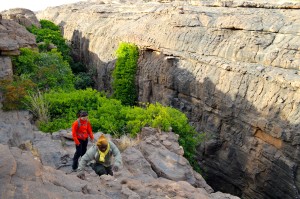
Dogon Country.
In the morning, we drove (via Bandiagara and another omelet breakfast) to the village of Sanga on the edge of the Dogon plateau. Here we would stay three nights in an auberge previously owned by a Christian mission and use it as a basecamp for exploring the villages of the Dogon Escarpment (what one thinks of as “typical” Dogon villages). We did not mind staying put as the auberge had a plentiful supply of beer. According to Salvador and judging by the built up tourism infrastructure (now completely empty), this place was a tourist zoo during this high Christmas-New Year season before the war five years ago. Now the closest we came to a foreign tourist in Mali was word that a single Japanese man had visited the Dogon lands a month prior.
.
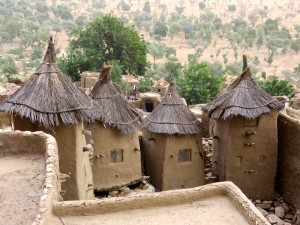
Dogon villages.
A quick afternoon hike with our Dogon guide Emmanuelle served as an appetizer for the “extra grand tour” the following day when we covered some 25 kilometers hiking (including some scrambling) through 7 or 8 villages. If you are not familiar with how the Dogon people greet each other, look it up on the internet. It’s a long and – to an outsider – fascinating custom. And as Emmanuelle began greeting nearly every adult we encountered in the first village in this manner, Shirley and I began thinking that we might be bivouacking at least one night on this “extra grand tour.”
Next morning, we wrapped things up with a 2 hour hike through the onion plantations and a stop in the weekly market in Sanga (thank you Emmanuelle!) before driving down to the plain below the Escarpment and a different auberge in the village of Koundou.
The Villages Of The “Extra Grand Tour”
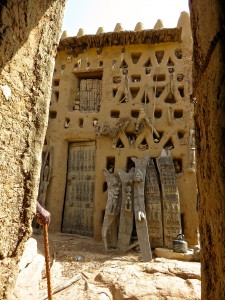
Sanga.
Daga, Amani, Yaye, Ireli, Pege, Banani, Sanga Gogoli, Sanga Bongo, Sanga (where we stayed).
Photos
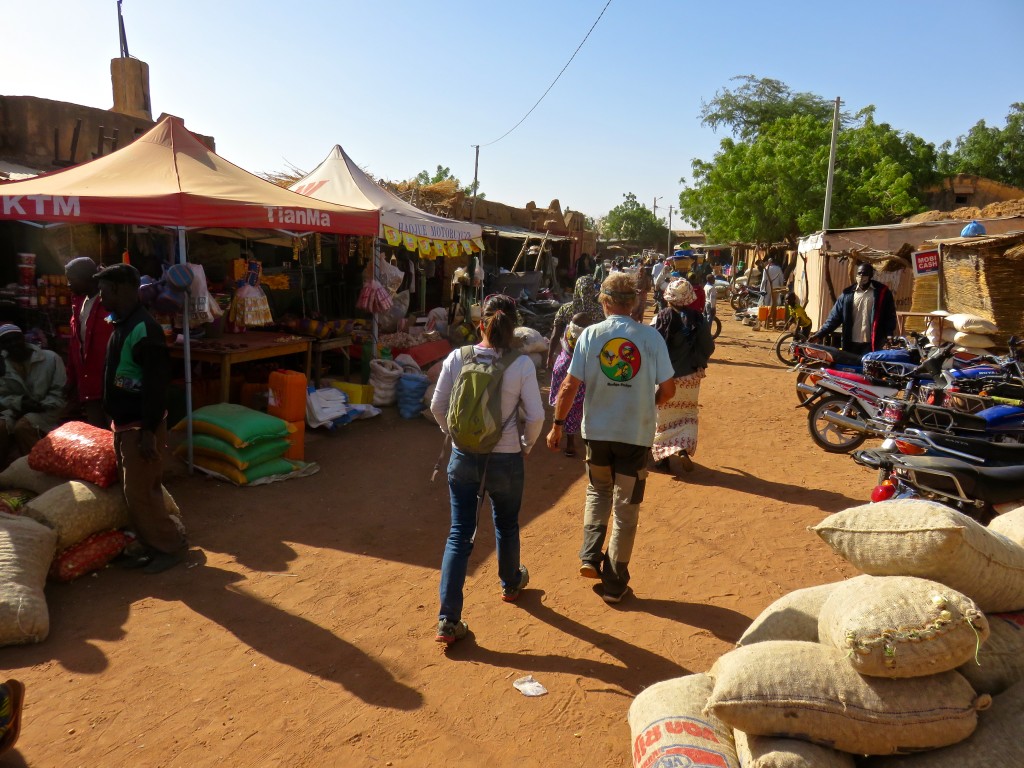
Salvador and Shirley walking through the weekly market in Bandiagara (Jan. 2016).
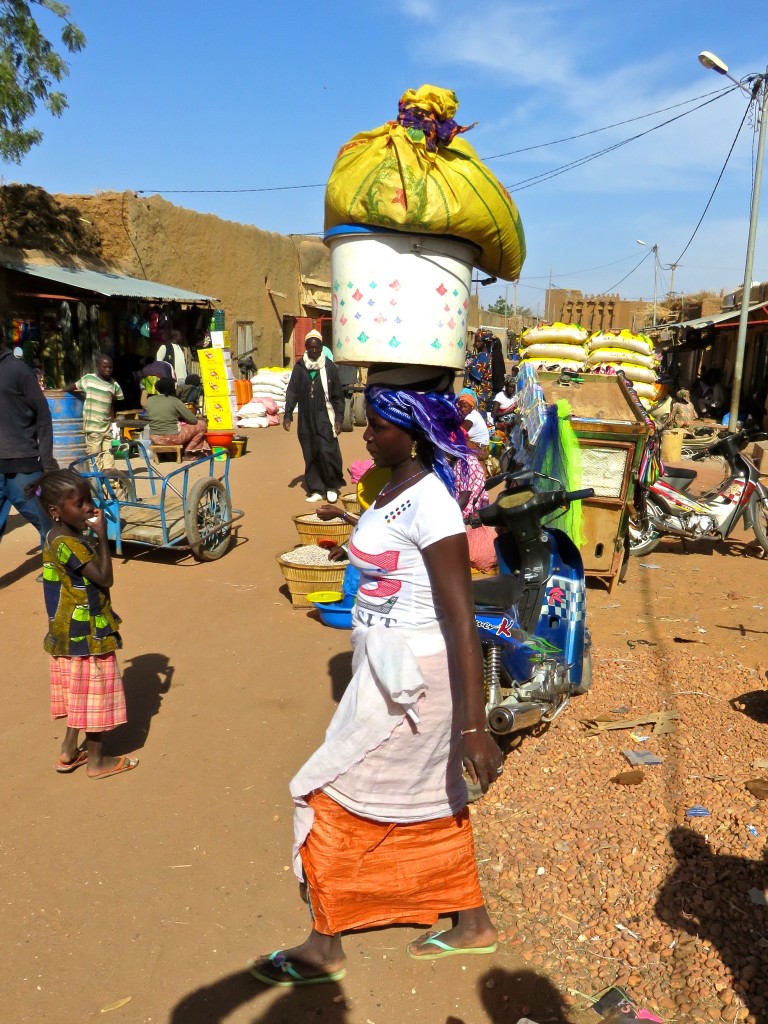
Bandiagara market (Jan. 2016).
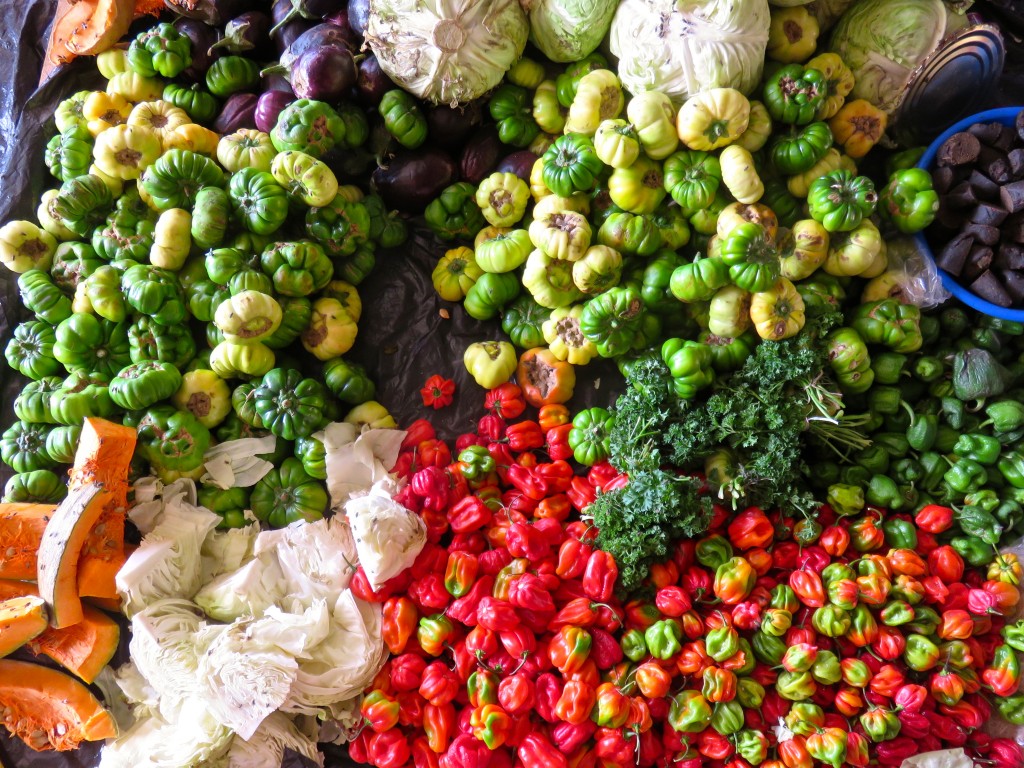
Bandiagara market.
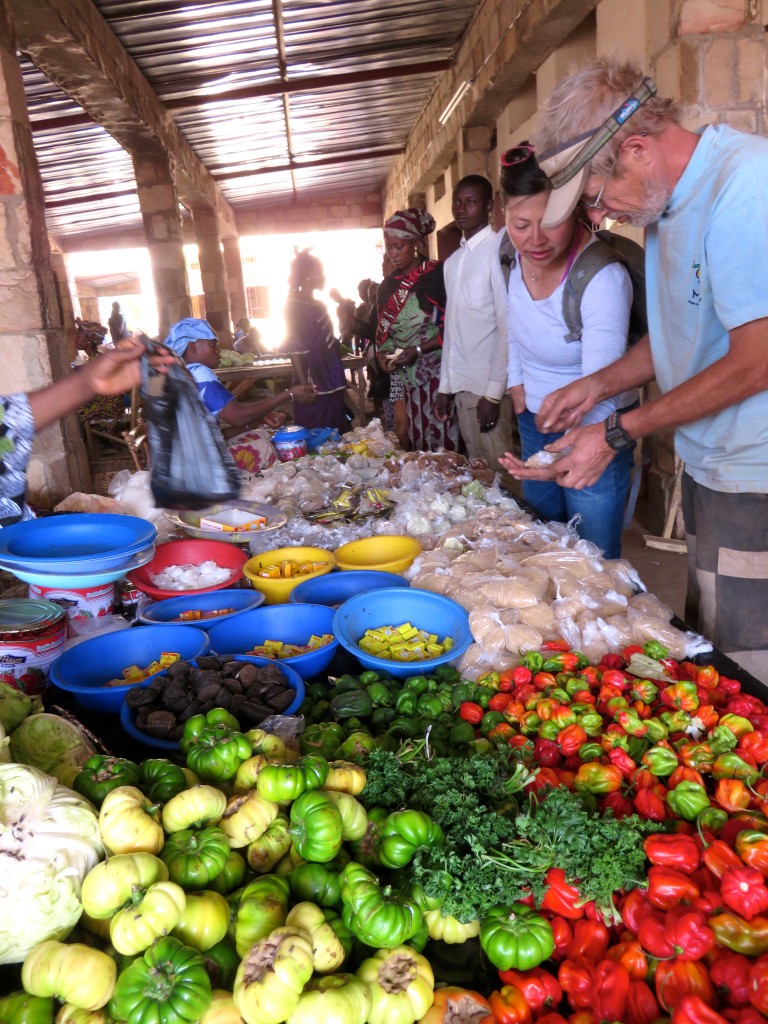
Salvador and Shirley buying some dried onions – a specialty of the Dogon country – which somehow ended up in our luggage and they have been a regular addition to our dinners at home (Jan. 2016).
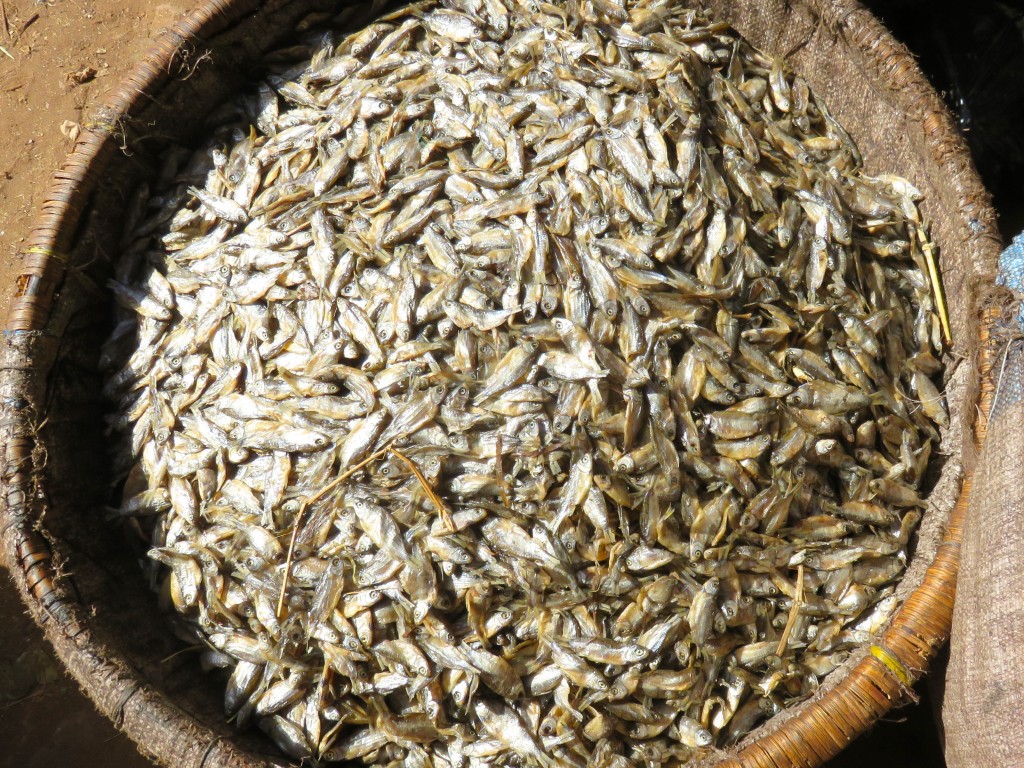
Offerings of Bandiagara market (Jan. 2016).
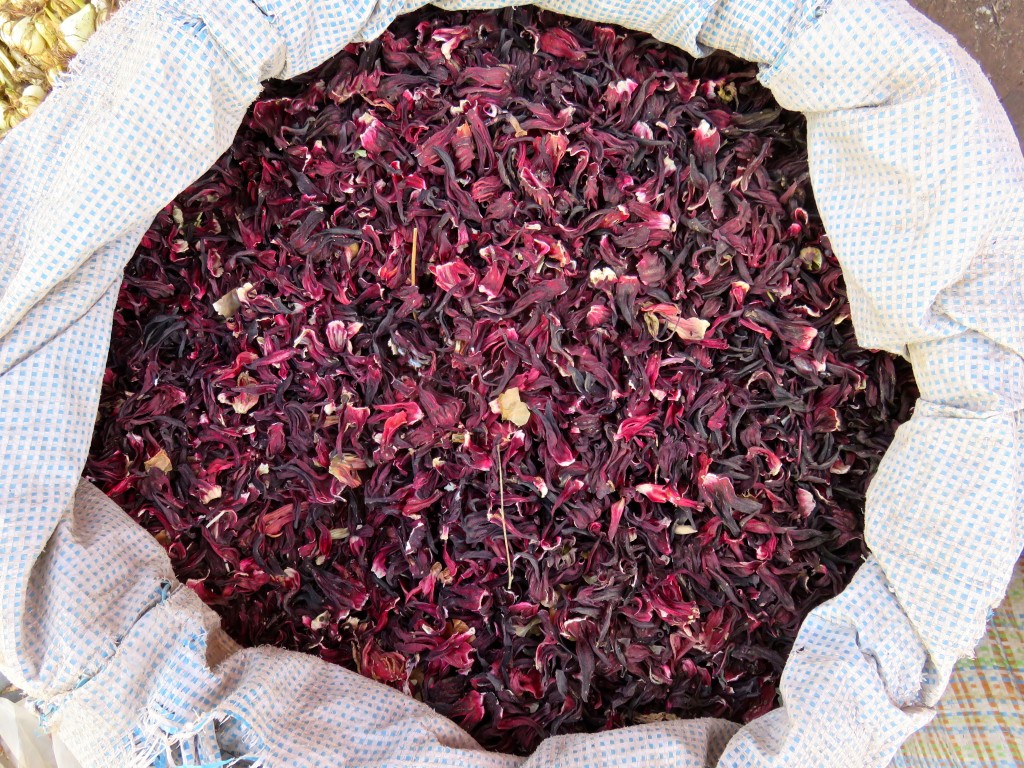
Another Bandiagara market offering that ended up in our bags…this is a dried flower that makes a tasty and beautifully colored tea (Jan. 2016).
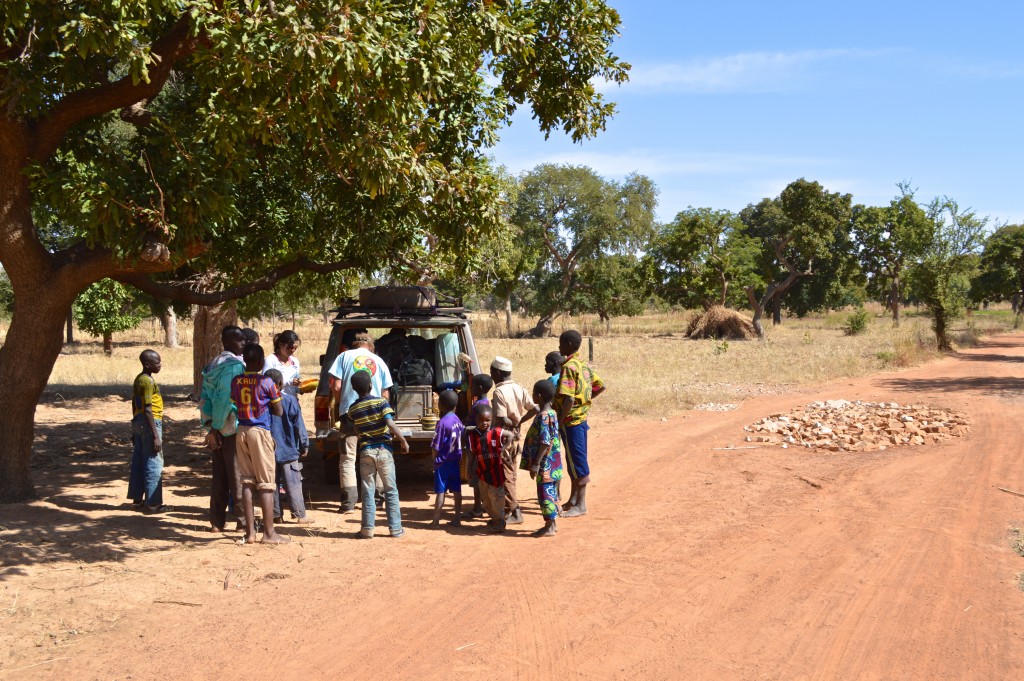
On the drive from Bandiagara to Sanga in the Dogon country. We stopped in the fields to eat some lunch and within 3 minutes had 20 children watching us very closely (Jan. 2016).
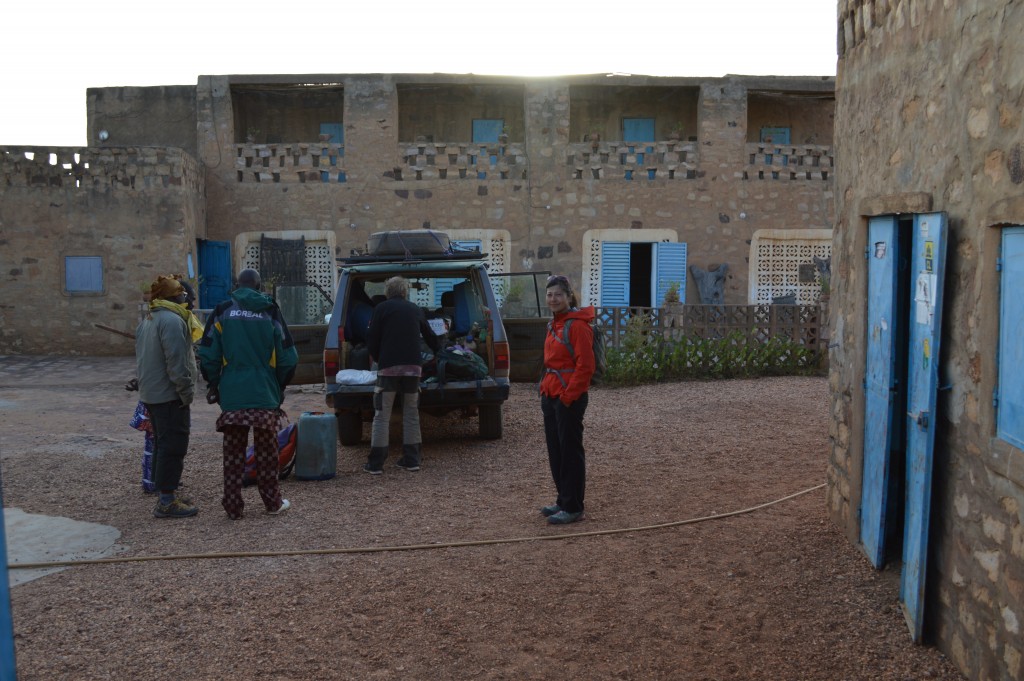
This is the auberge where we stayed for 3 nights while visiting some of the Dogon villages. It used to be owned by the next door Christian mission – good cooking and beer (Jan. 2016).
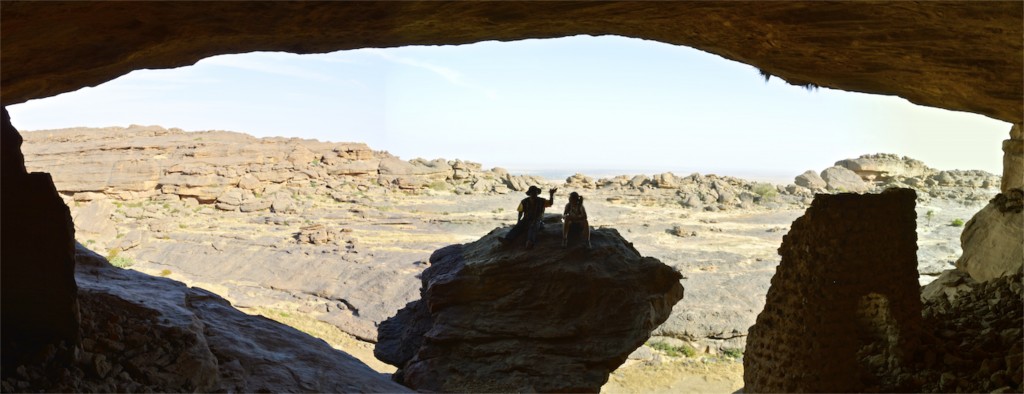
Shirley and Emmanuelle hanging out in a cave with some ruins and bones (old Dogan burial site; Jan. 2016).
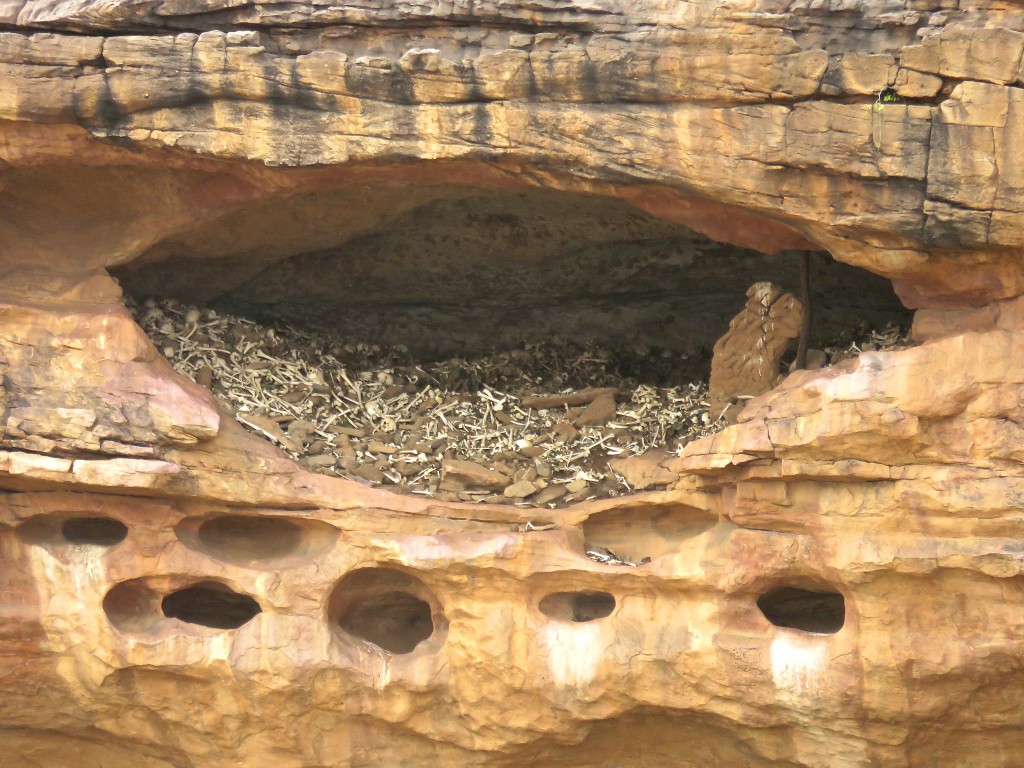
The Dogon put their dead into natural caves in the cliff. This is an old grave but the tradition continues to today (Jan. 2016).
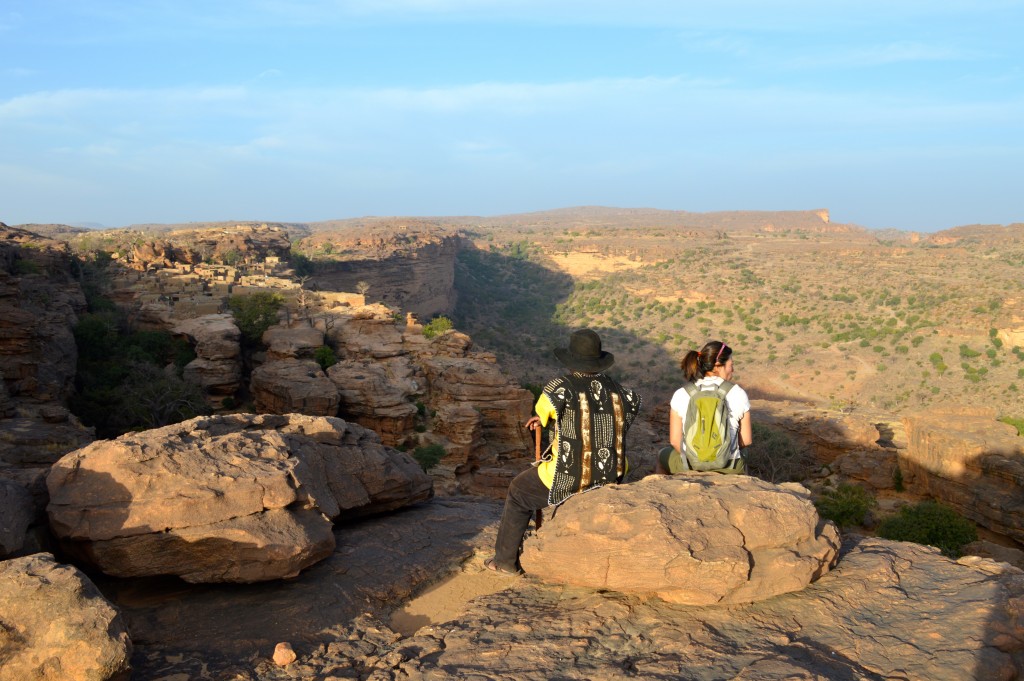
Shirley and our Dogon guide Emmanuelle taking in the sunset at the edge of the Bandiagara plateau outside of the village of Sanga (Jan. 2016).
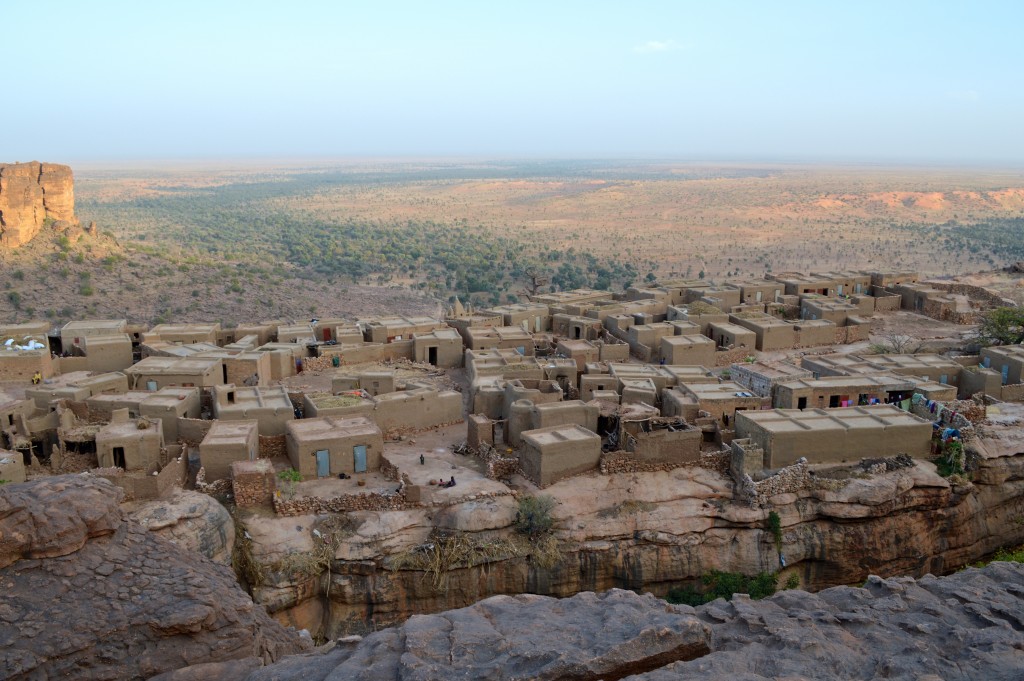
A Dogon village (I don’t recall the name) near to Sanga (Jan. 2016).
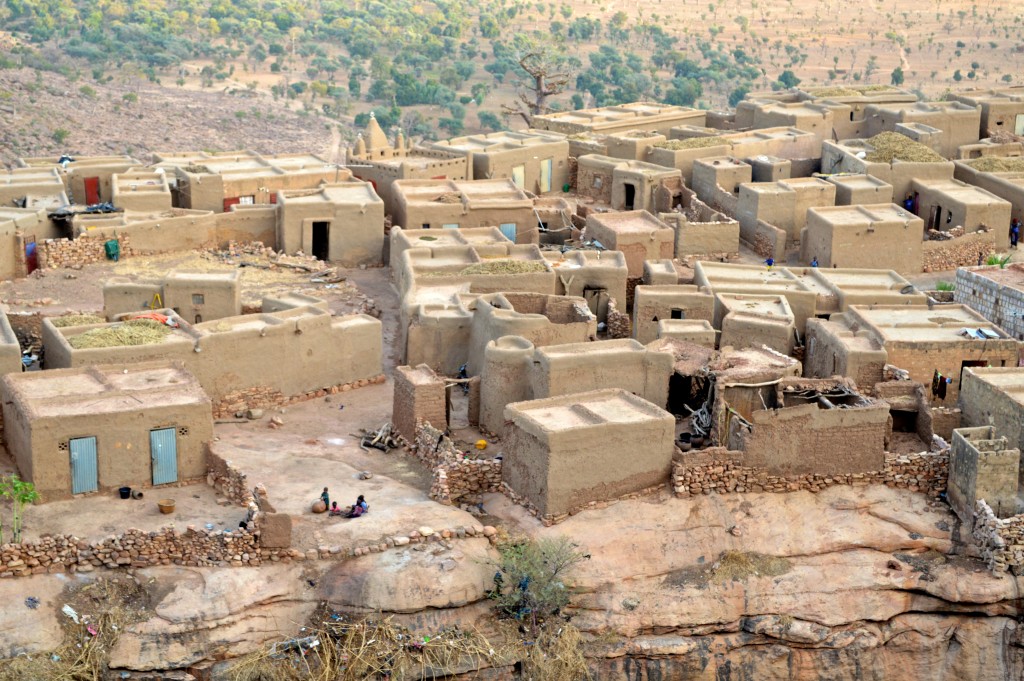
Same village (Jan. 2016).
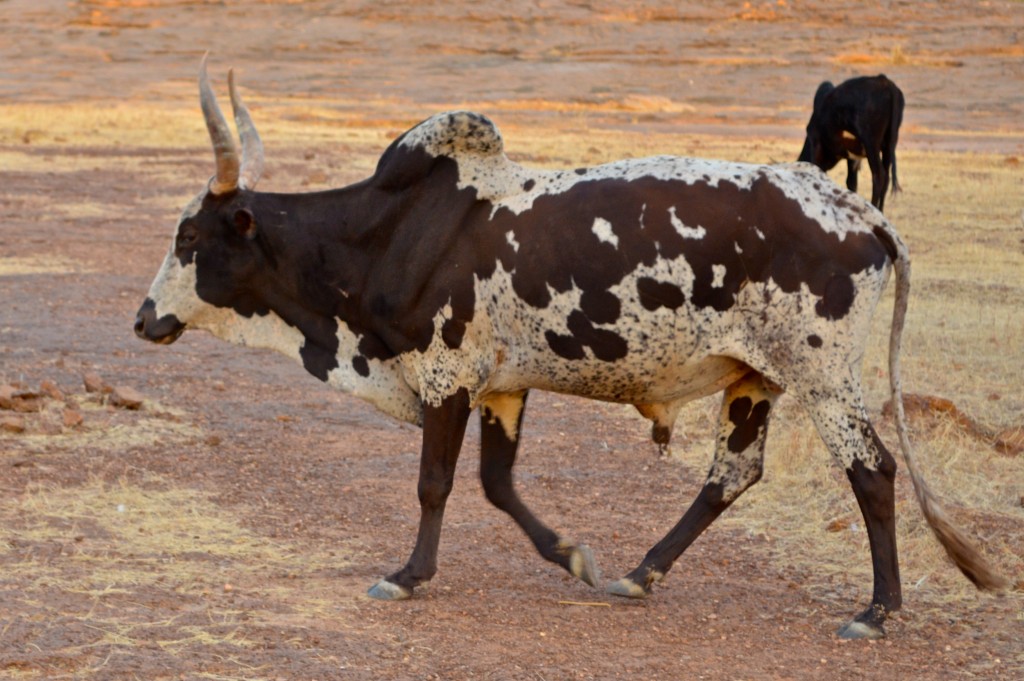
A male zebu (Jan. 2016).
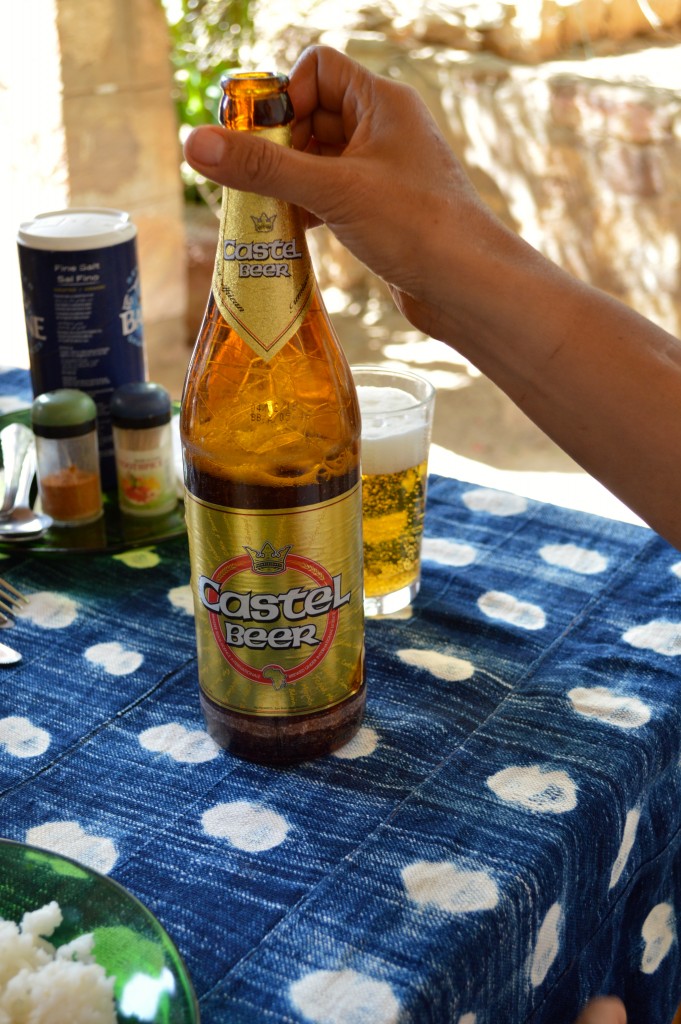
First beer since Burkina Faso – courtesy of the auberge we stayed at. Bottled in Bamako but I suspect its origins might not be Malian…
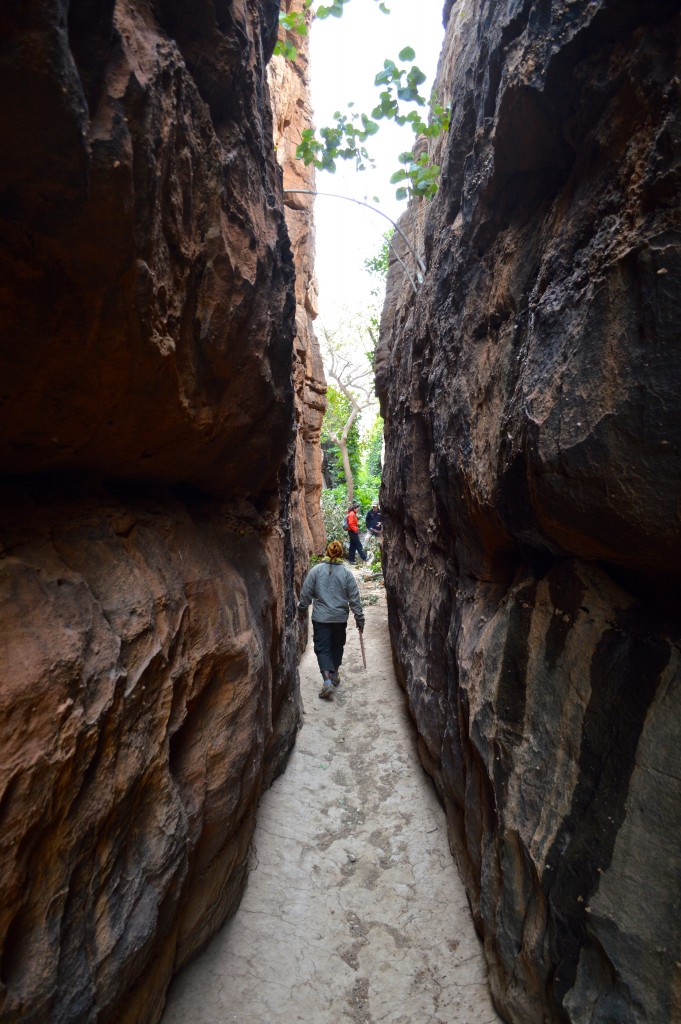
Starting our “extra grand tour” of the Dogon villages on our day 2 at Sanga. Emmanuelle was our guide and Salvador joined us for the first ~2km (out of ~23km).
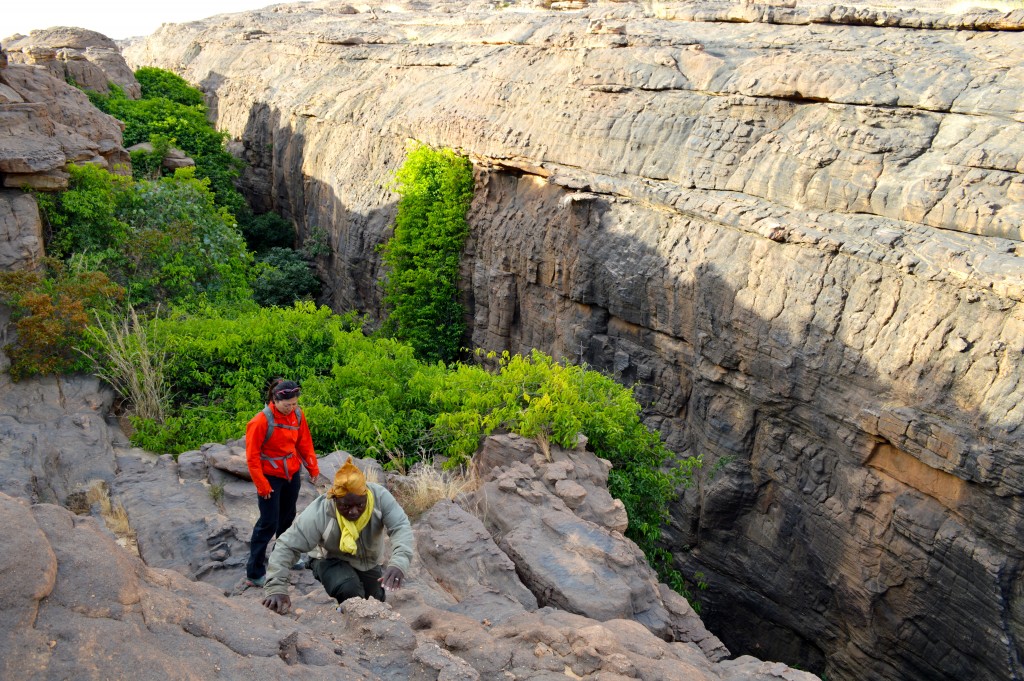
The escarpment has many “tributary” canyons some of which are veritable Gardens of Eden (Jan. 2016).
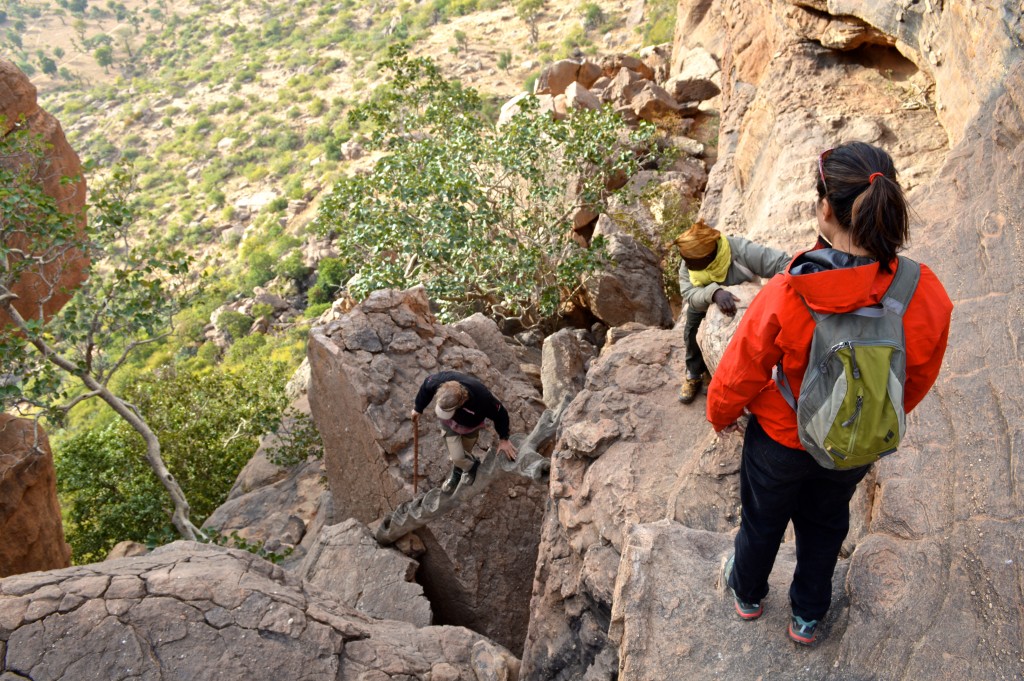
Descending down to our first village of the day. Note the typical Dogon ladder (Jan. 2016).
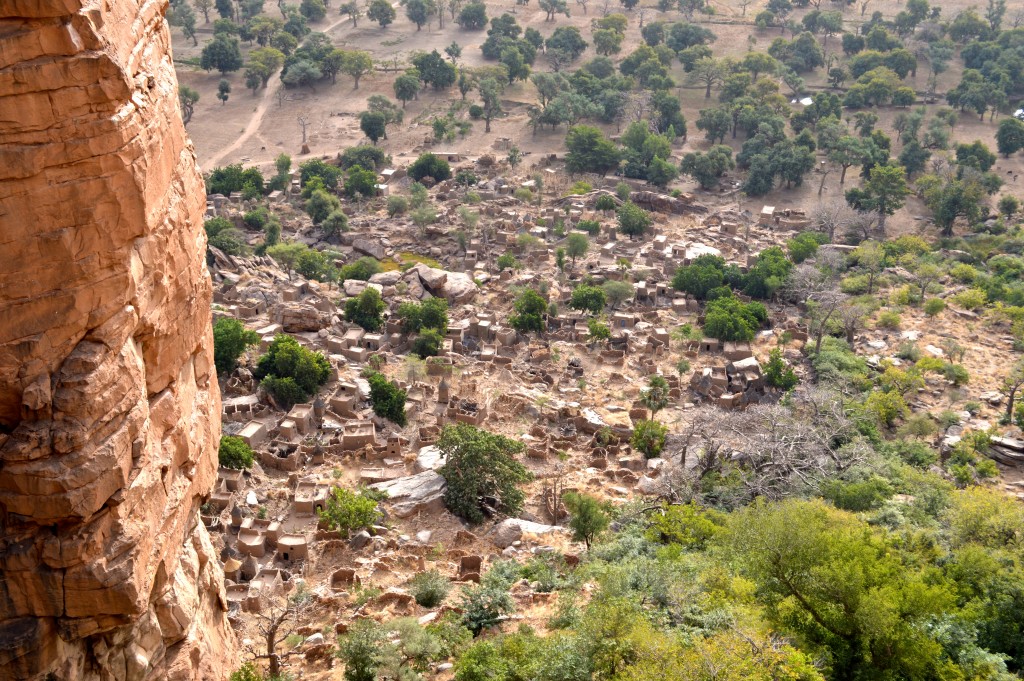
Our first village of the day. This is Daga (Jan. 2016).
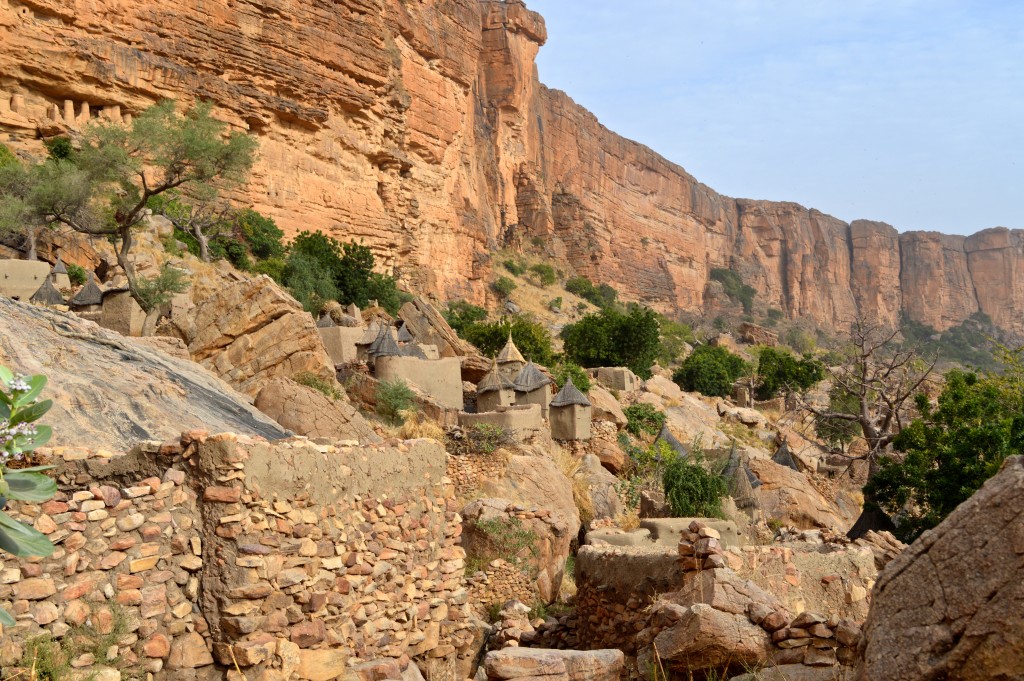
Daga and the escarpment from below (Jan. 2016).
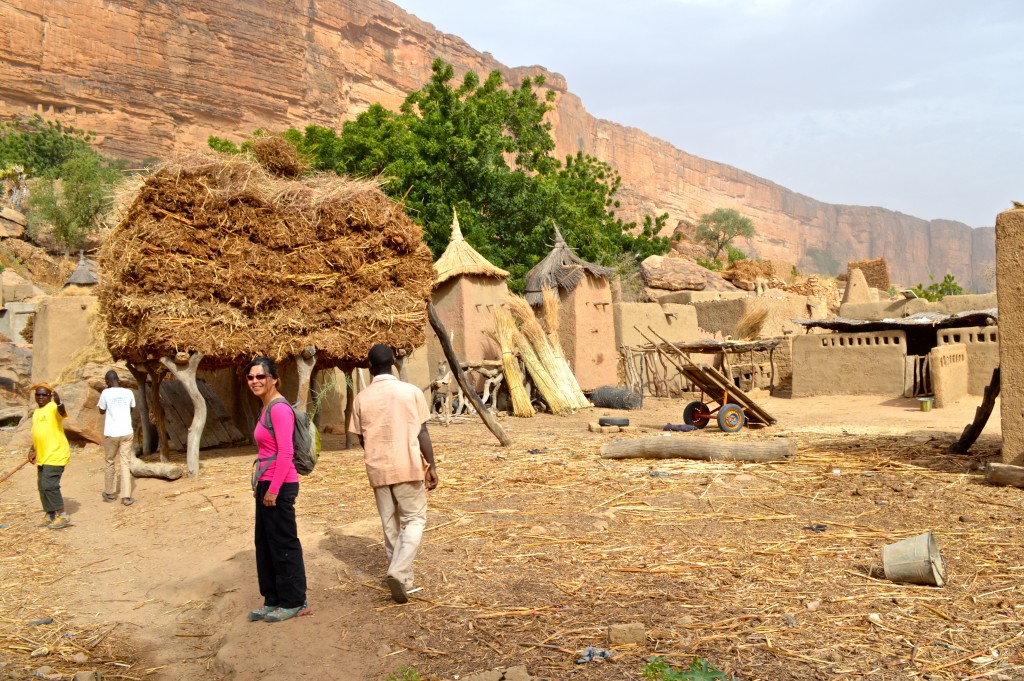
Emmanuelle (yellow shirt) and Shirley hiking through one of the early villages. I’m guessing it’s either Amani or Yaye (Jan. 2016).
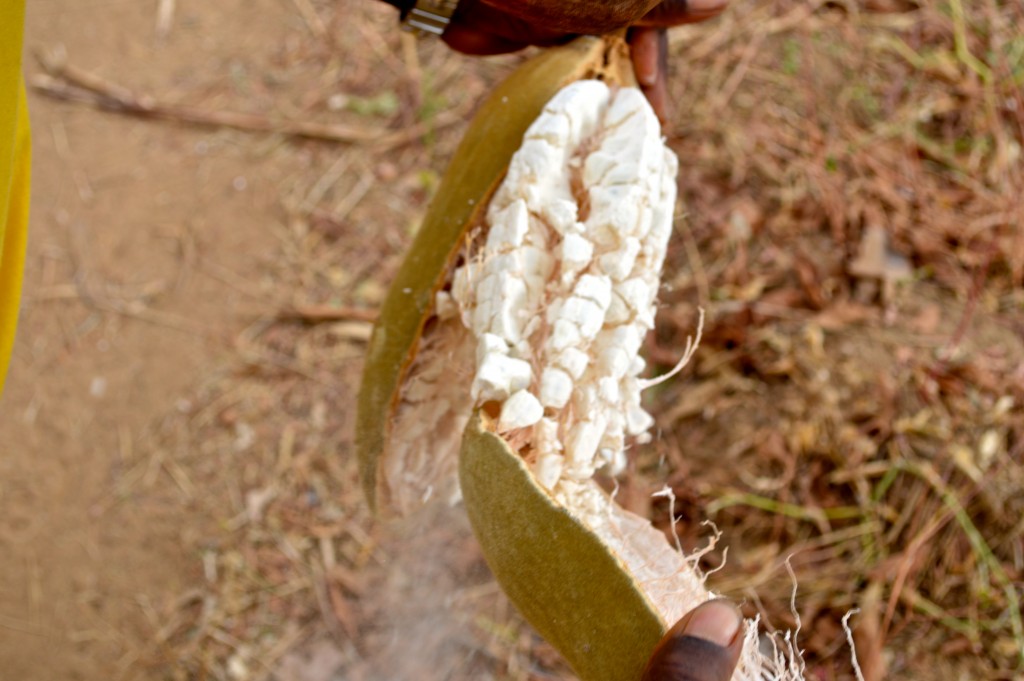
The fruit of the baobab tree. Dogon call it “monkey bread.” It has the texture of styrofoam (dry, low density) and the taste a bit like Beyer aspirin (not bad actually).
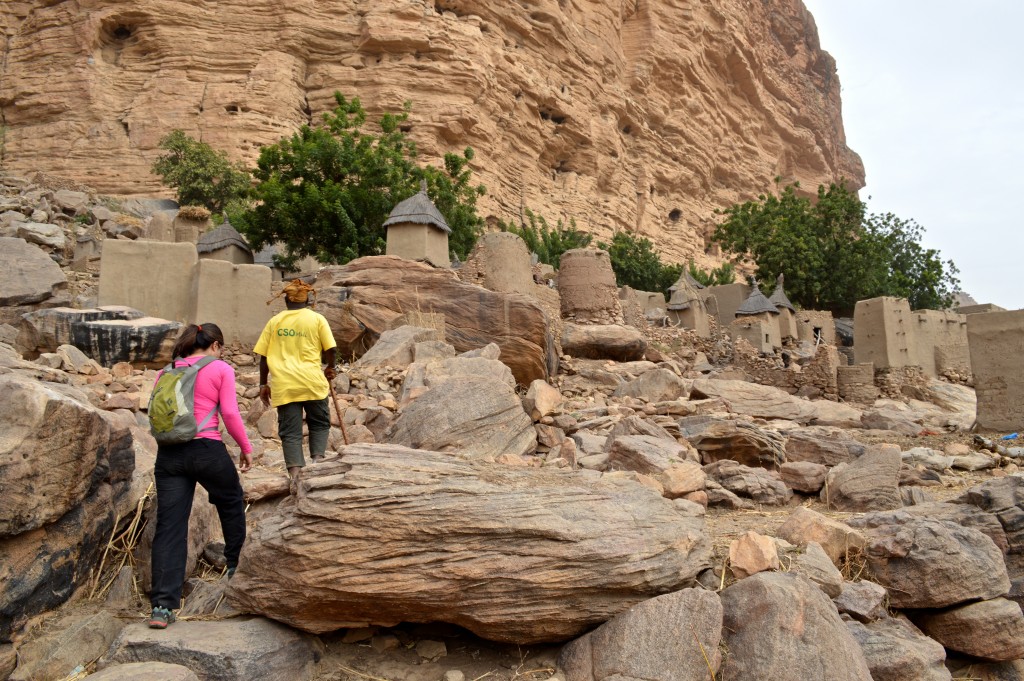
More Dogon villages. I’m semi-guessing here but it might be Ireli (Jan. 2016).
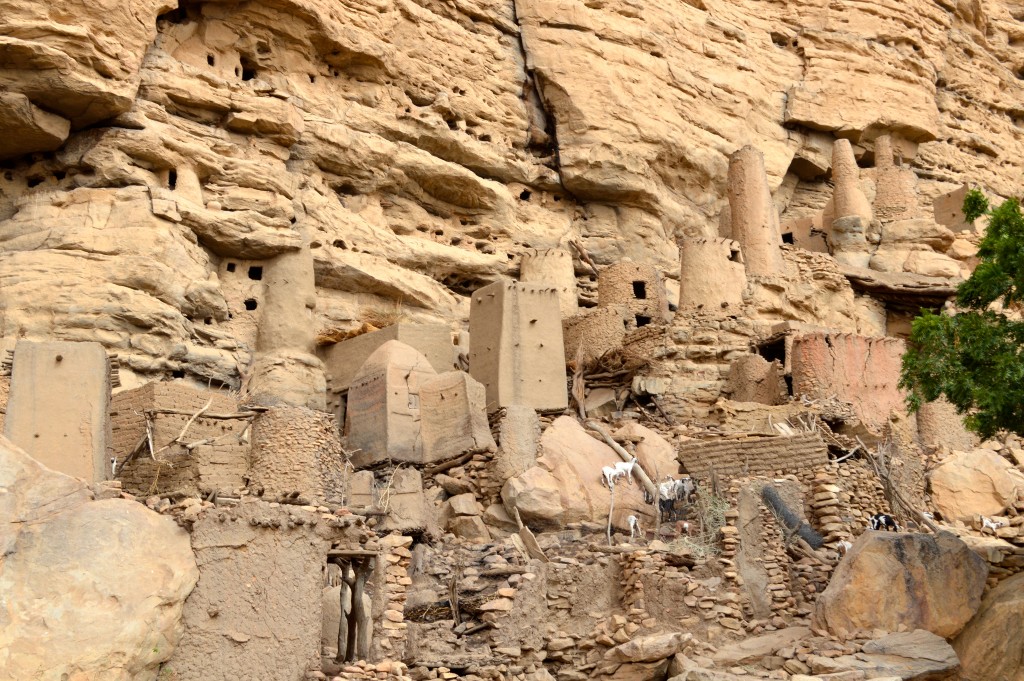
Old (abandoned) part of one of the villages on our tour (Jan. 2016).
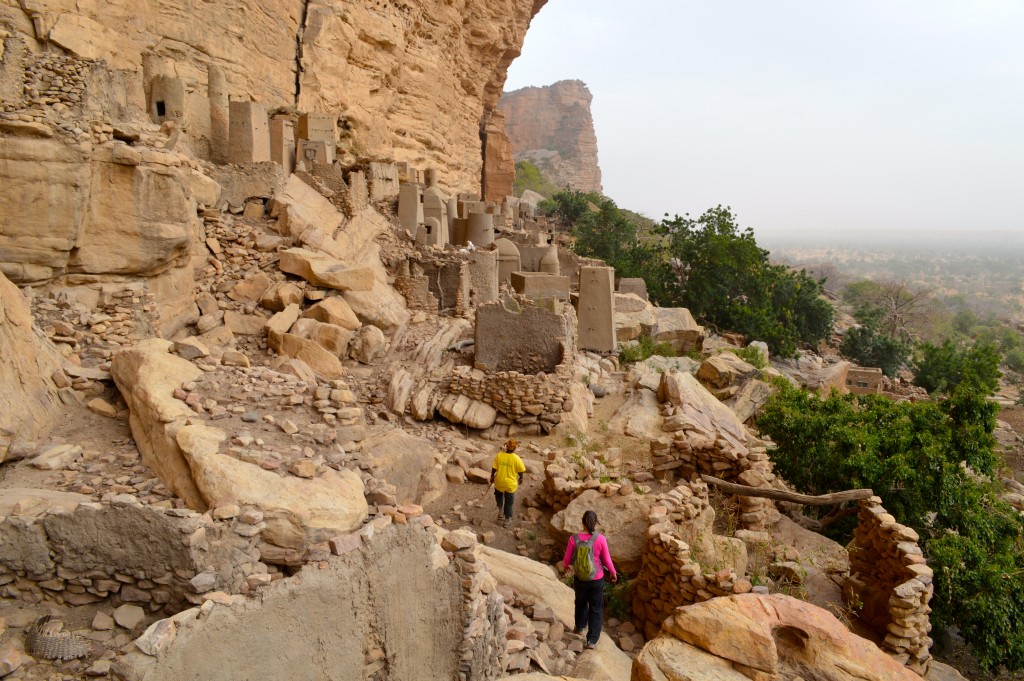
Emmanuelle and Shirley hiking through the same village (Jan. 2016).
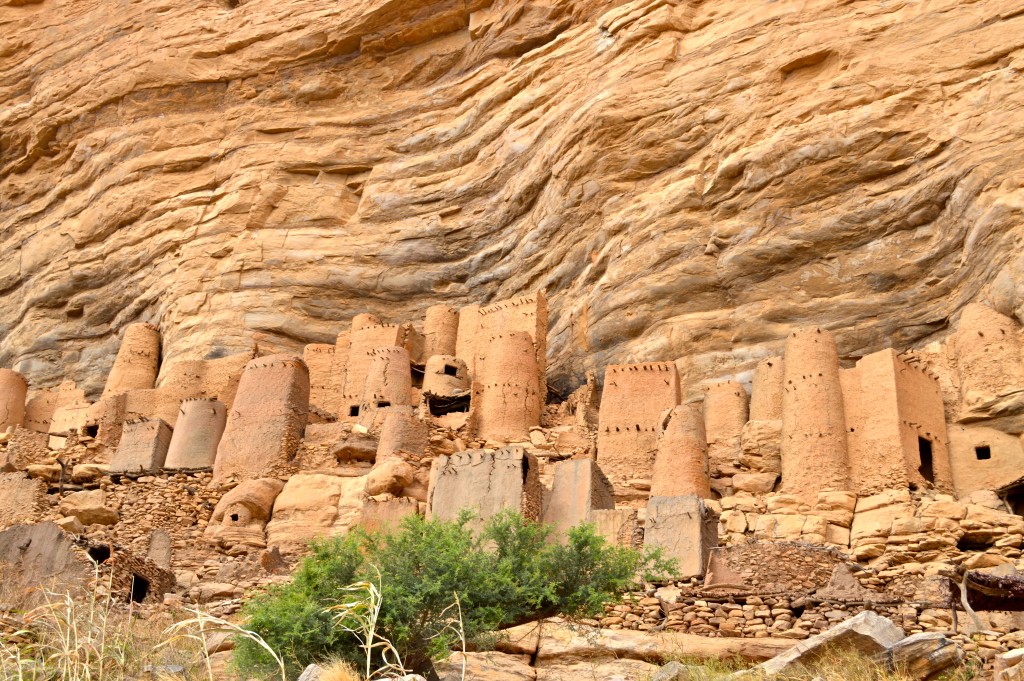
More ruins (Jan. 2016).
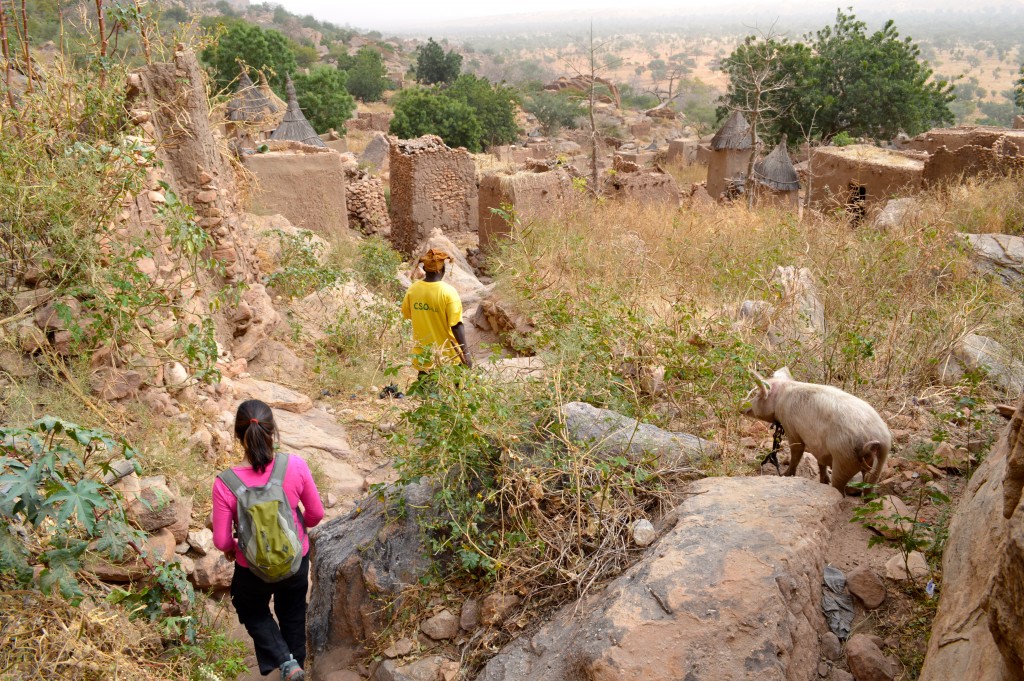
Under the watchful eye of some livestock (Jan. 2016).
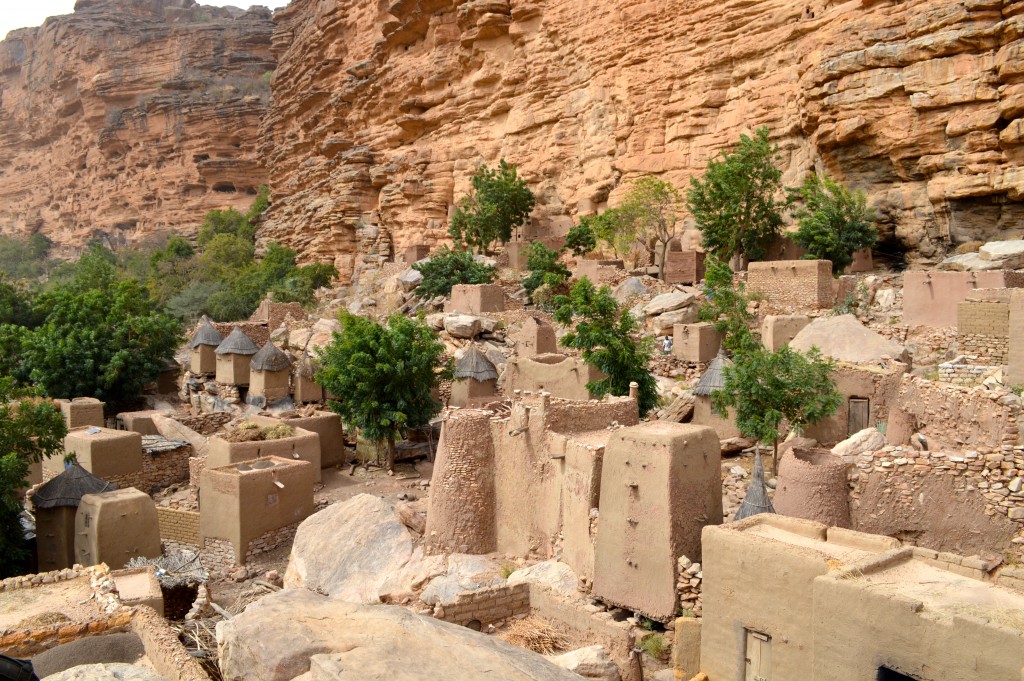
Another Dogon village at the base of the escarpment (Jan. 2016).
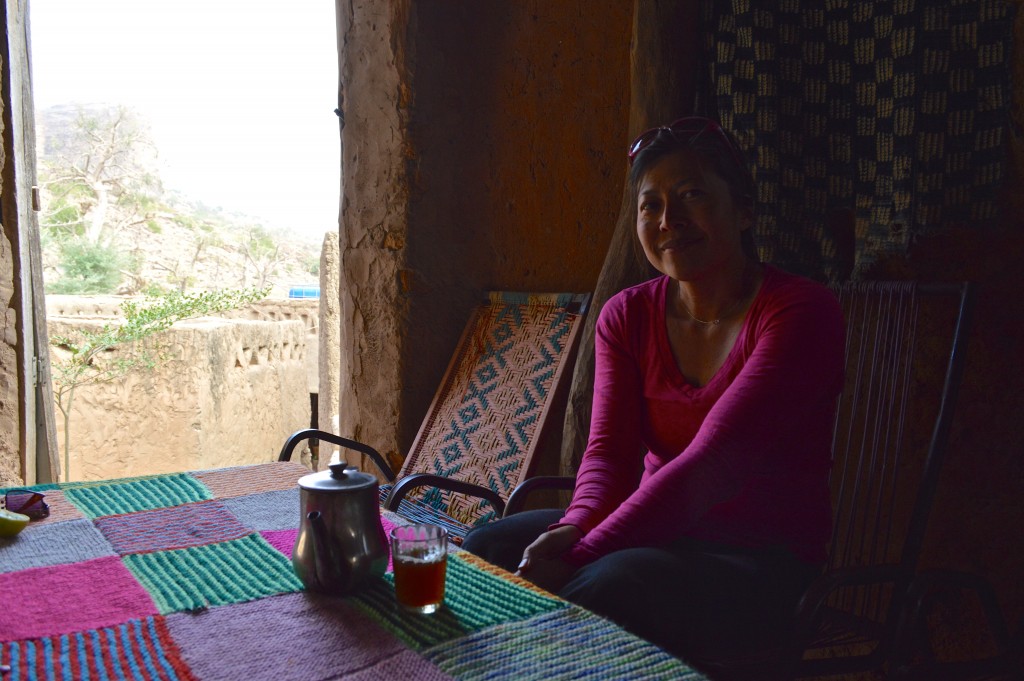
A lunch break on our “extra grand tour” which included some traditional (sweet!!) tea (Jan. 2016).
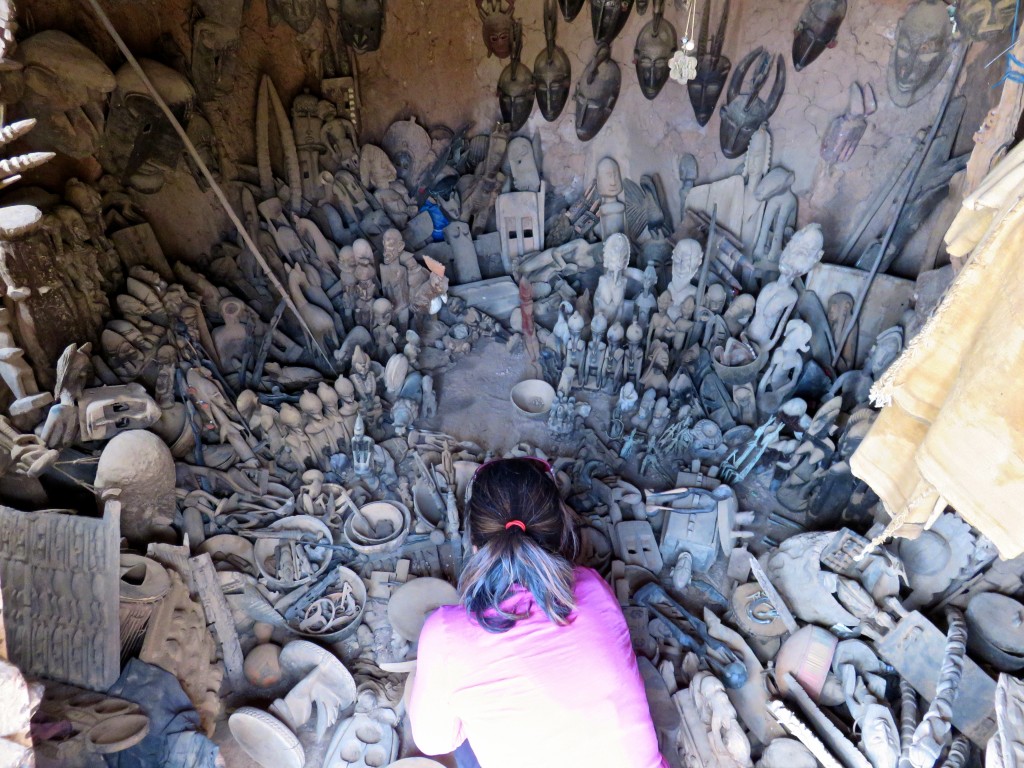
La Fiesta De Los Fetiches! Shirley checking out the hand-carved trinkets that the villagers used to sell to (now nonexistent) tourists (Jan. 2016).
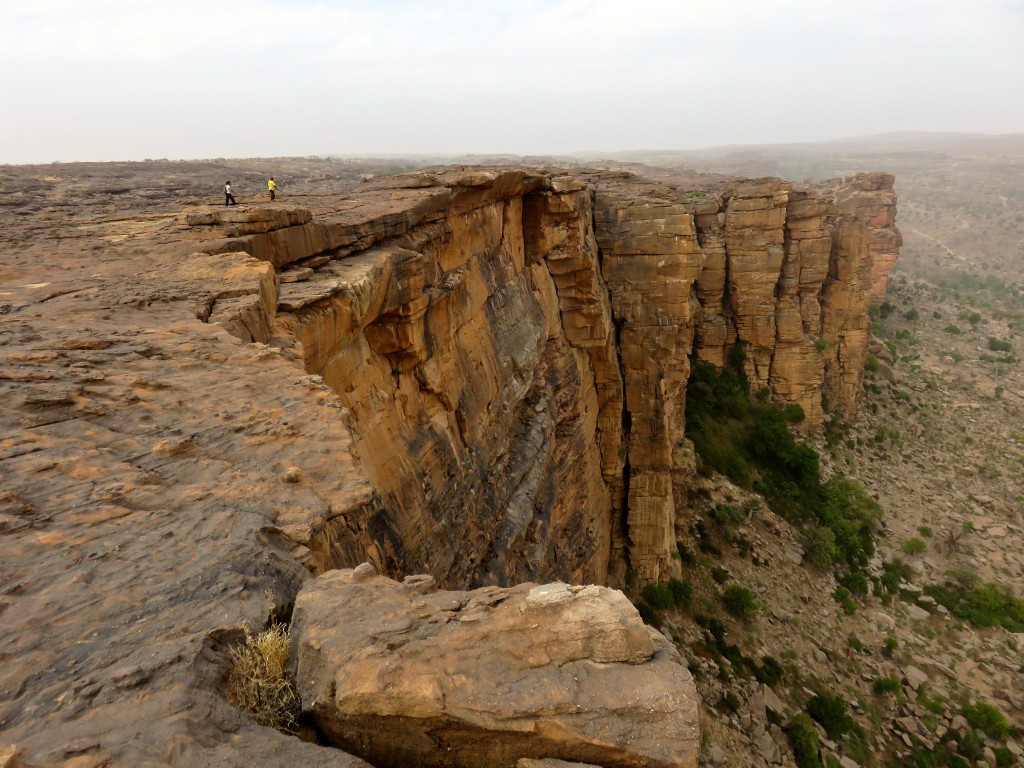
Shirley and Emmanuelle hiking along the edge of the escarpment (Jan. 2016).
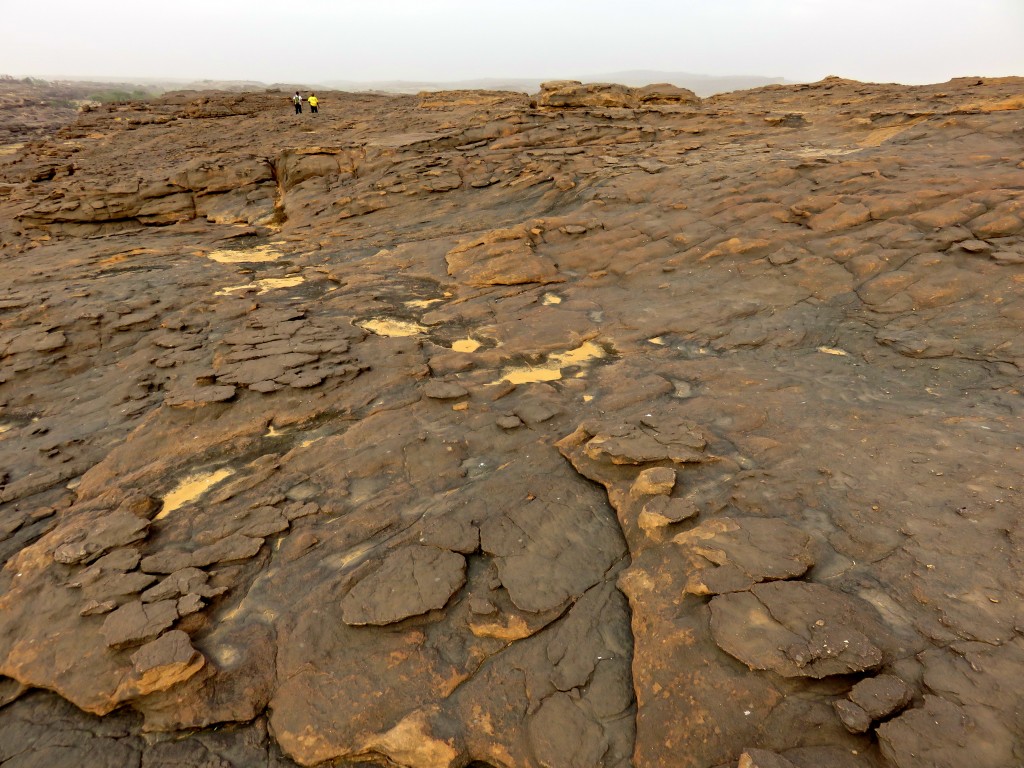
Shirley and Emmanuelle off in the distance. The rock is pretty amazing…wish there was climbing (Jan. 2016).
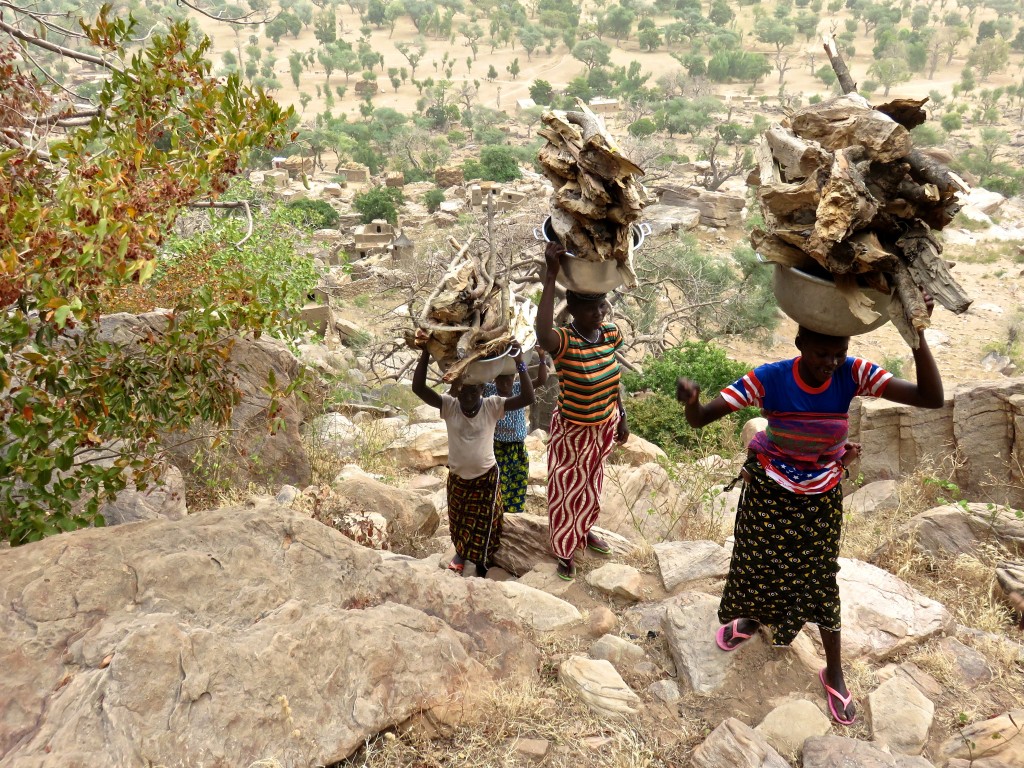
Women and girls carrying firewood up to the top of the escarpment…those bundles are up to 25kg. Note the baby on the back of the lead lady. That’s a pretty amazing feat esp. considering the steepness of the trail (Jan. 2016).
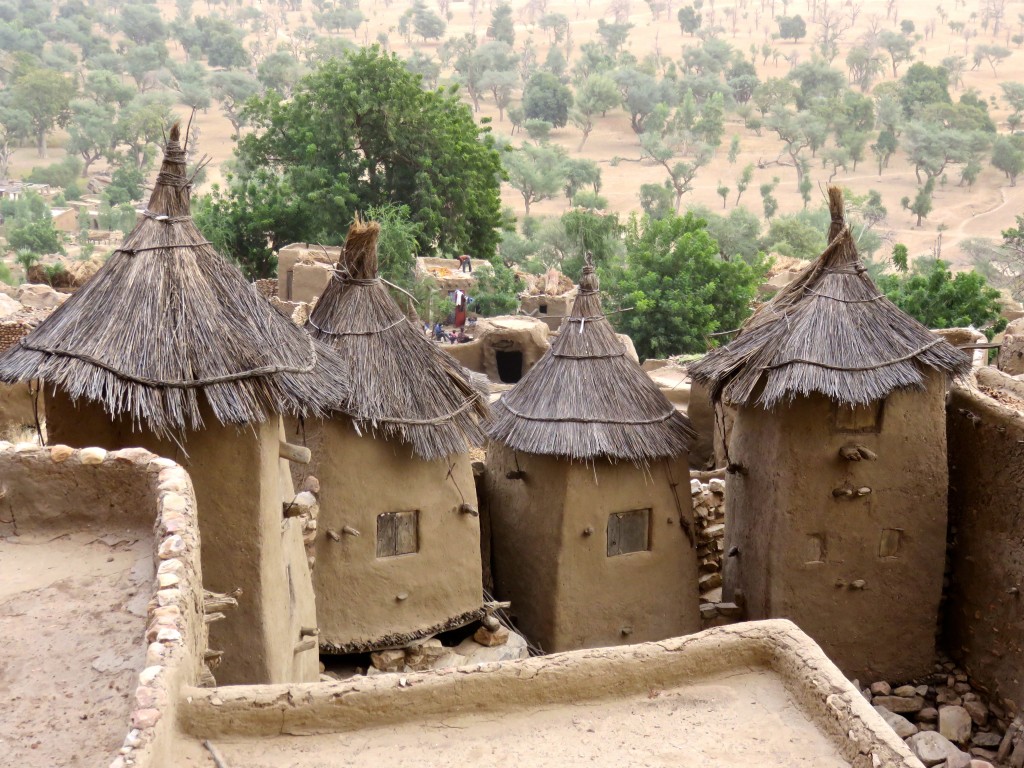
Dogon millet and provisions stores (Jan. 2016).
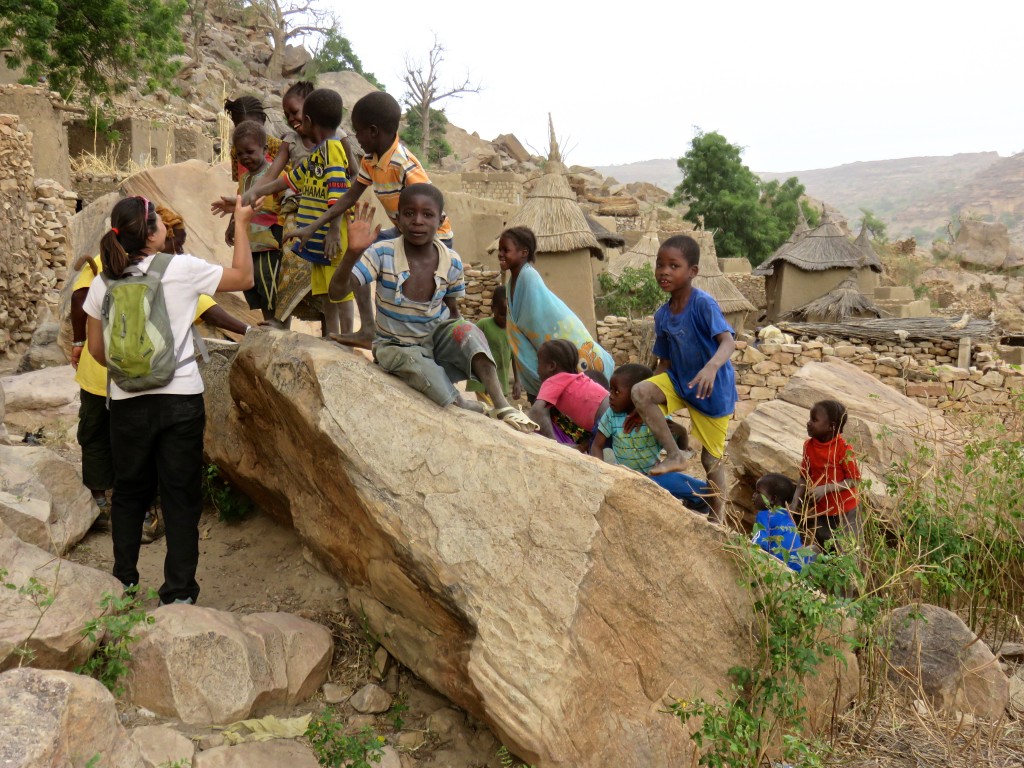
Shirley the visiting VIP…the kids were more than a little excited to see outsiders: “Ça va!! Madam!” (Jan. 2016).
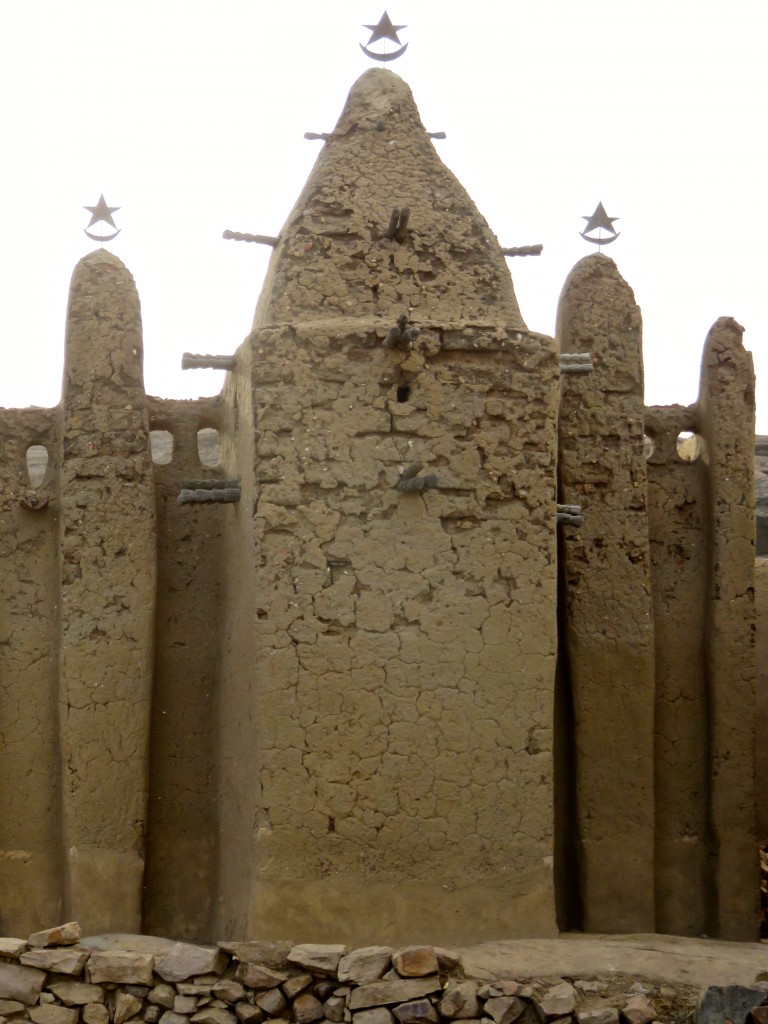
A mosque in the village of Sanga Bongo (Jan. 2016).
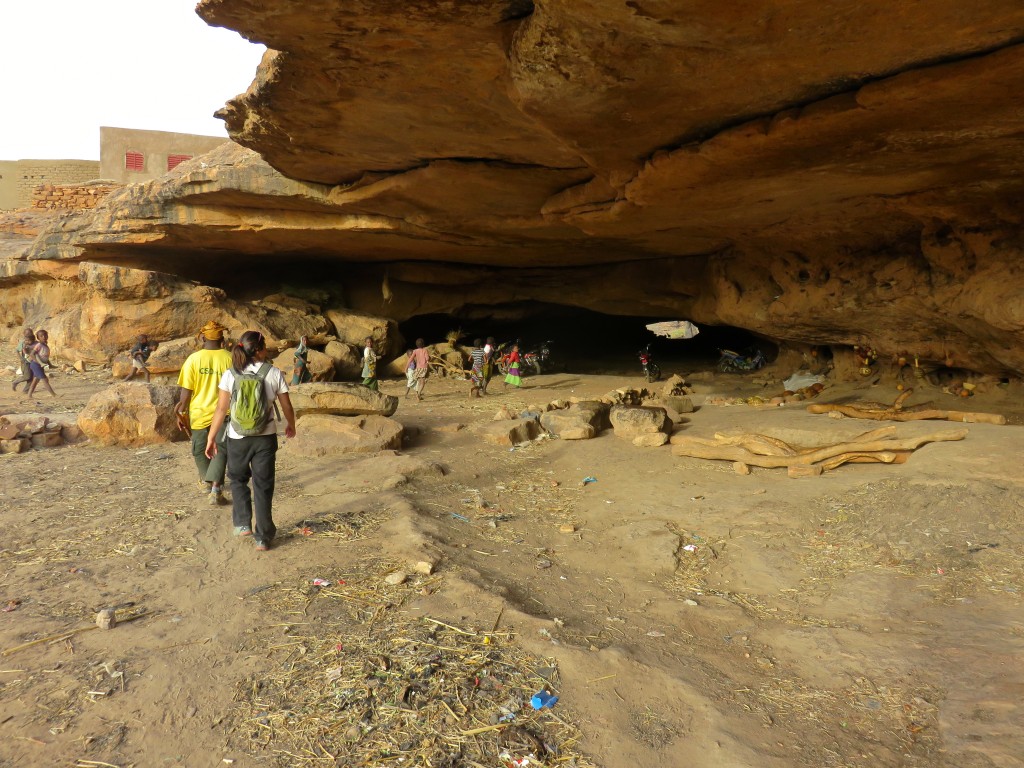
A natural tunnel in the village of Sanga Bongo that used to provide the only access for cars (prior to a new “road” being built).
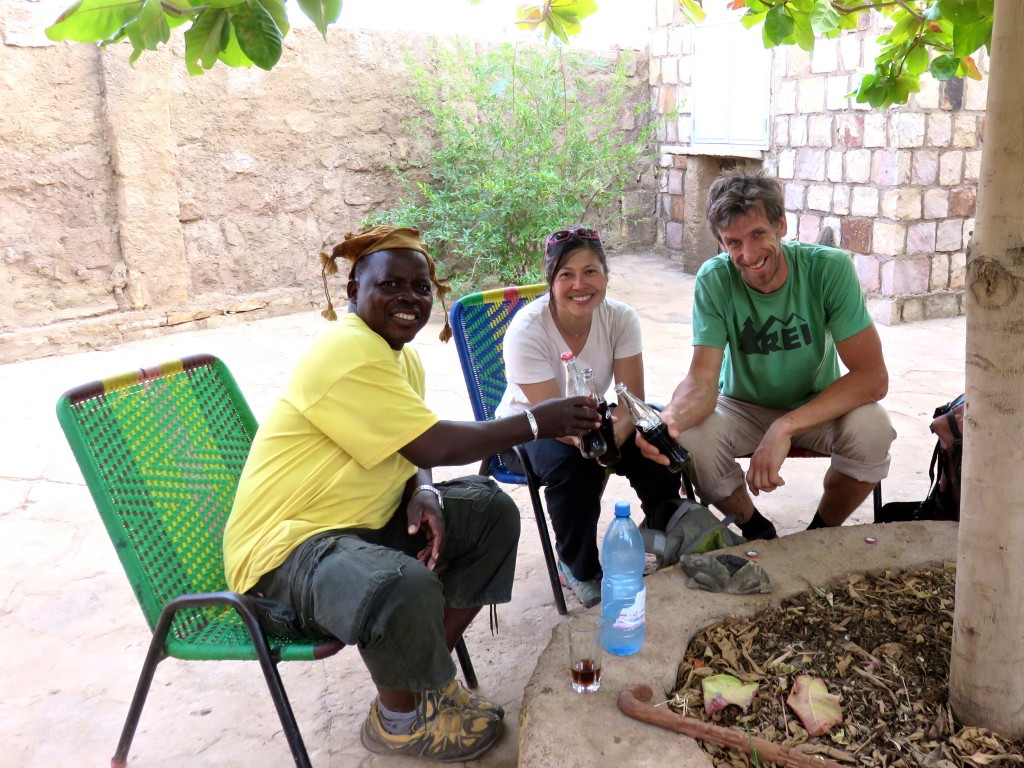
A celebratory coke with Emmanuelle near the end of our >20km hike (Jan. 2016).
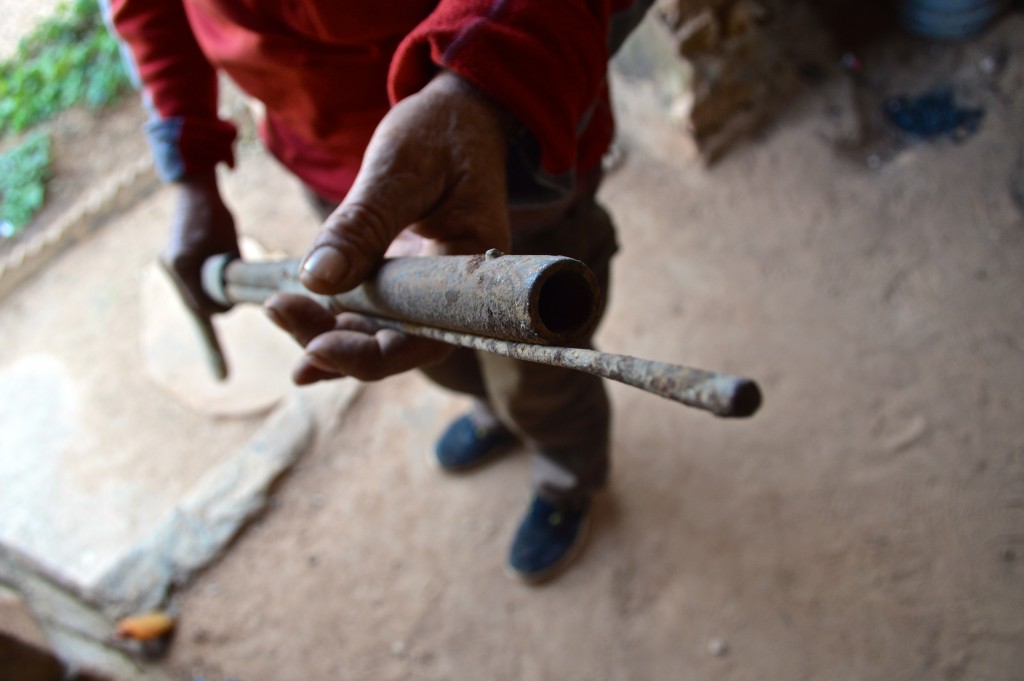
Salvador checking out a home-made rifle at an armory/black smith shop in Sanga (Jan. 2016).
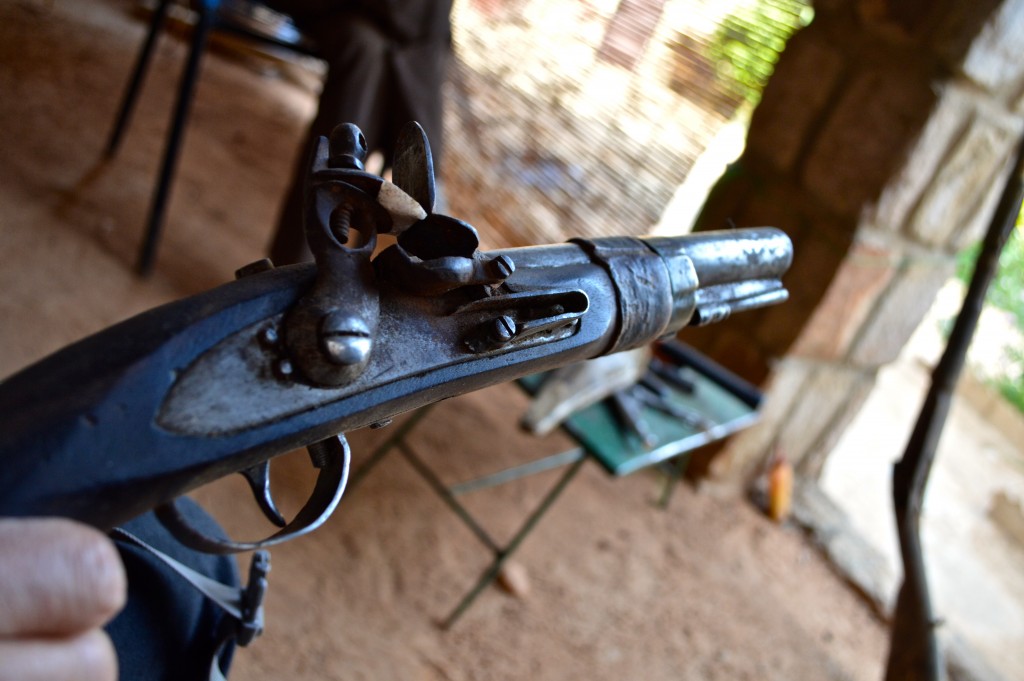
At the armory (Jan. 2016).
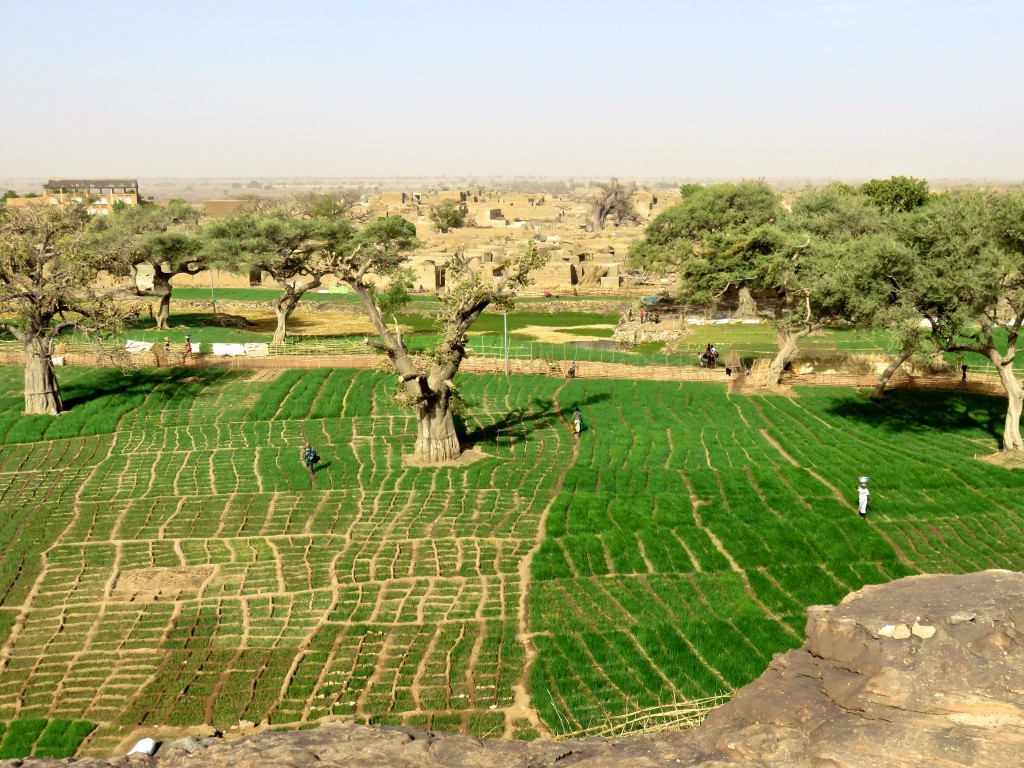
The onion fields just outside of the village of Sanga (Jan. 2016).
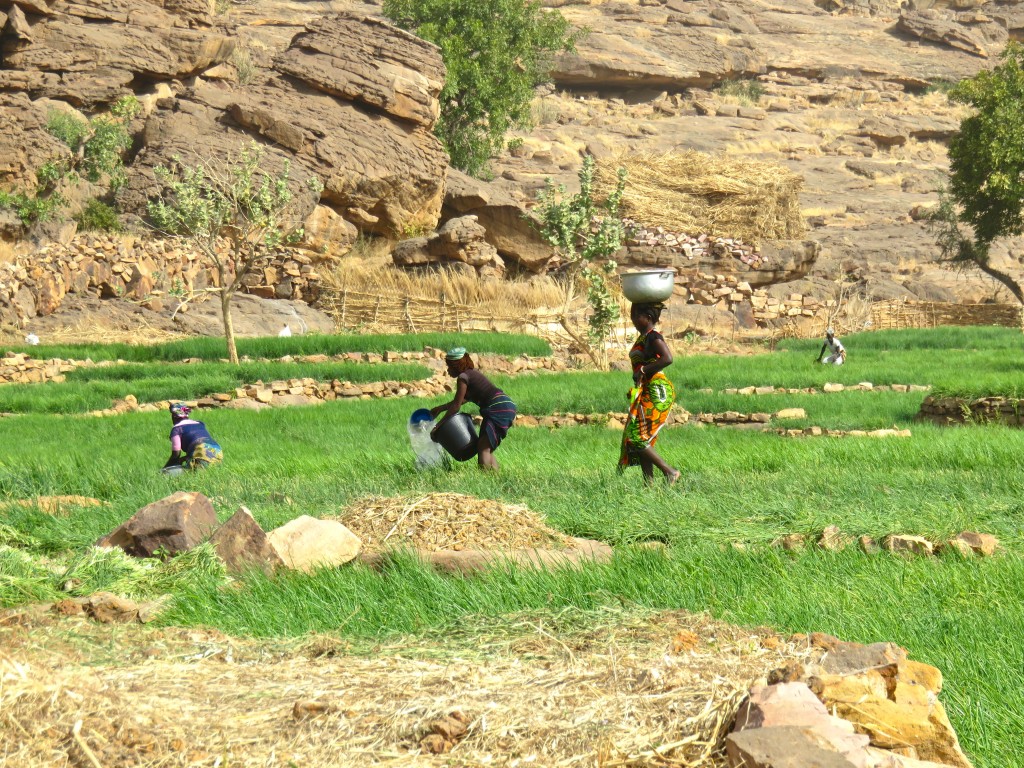
Women working the onion fields in the morning (Jan. 2016).
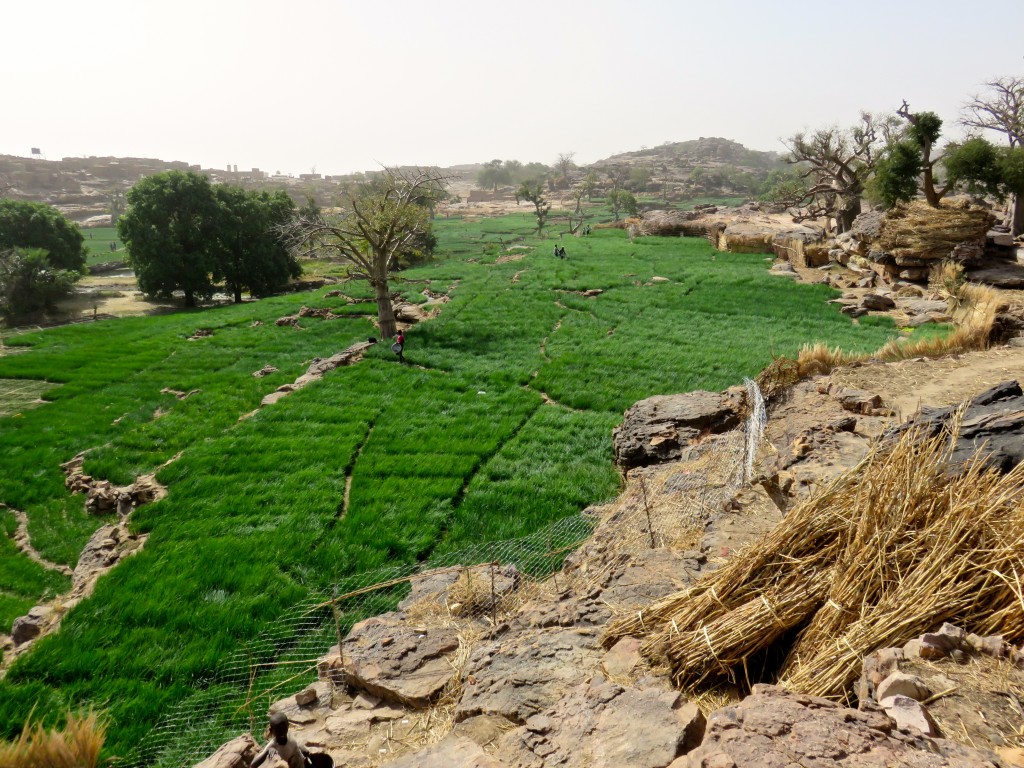
More onions (Jan. 2016).
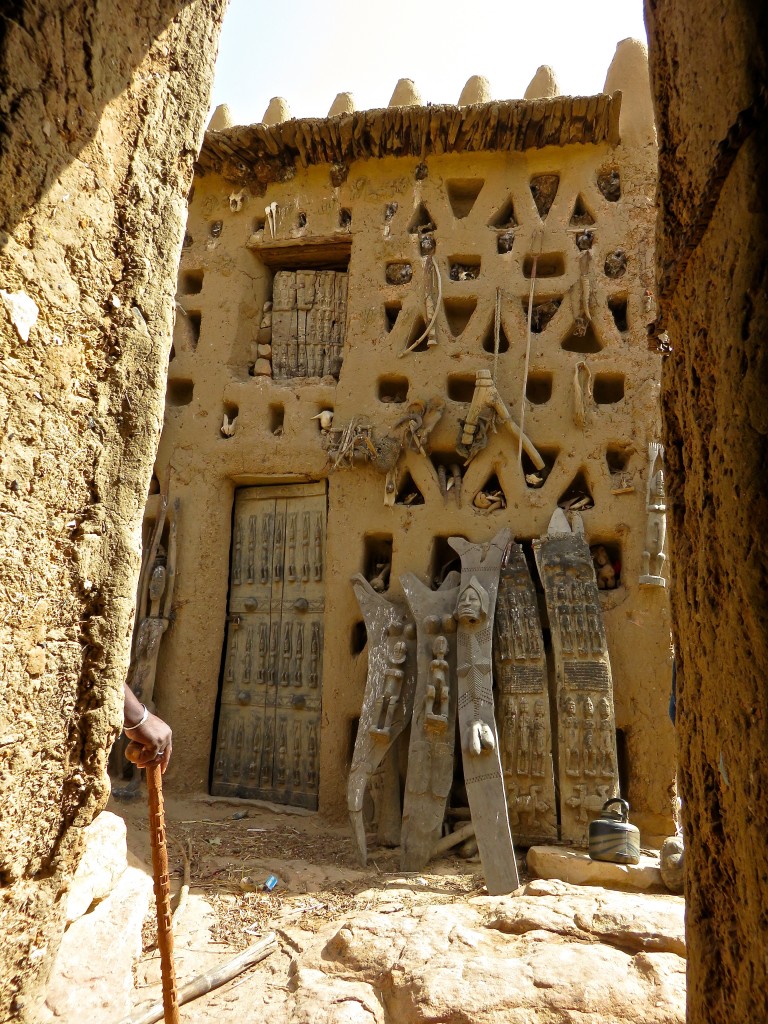
Sights in Sanga (Jan. 2016).
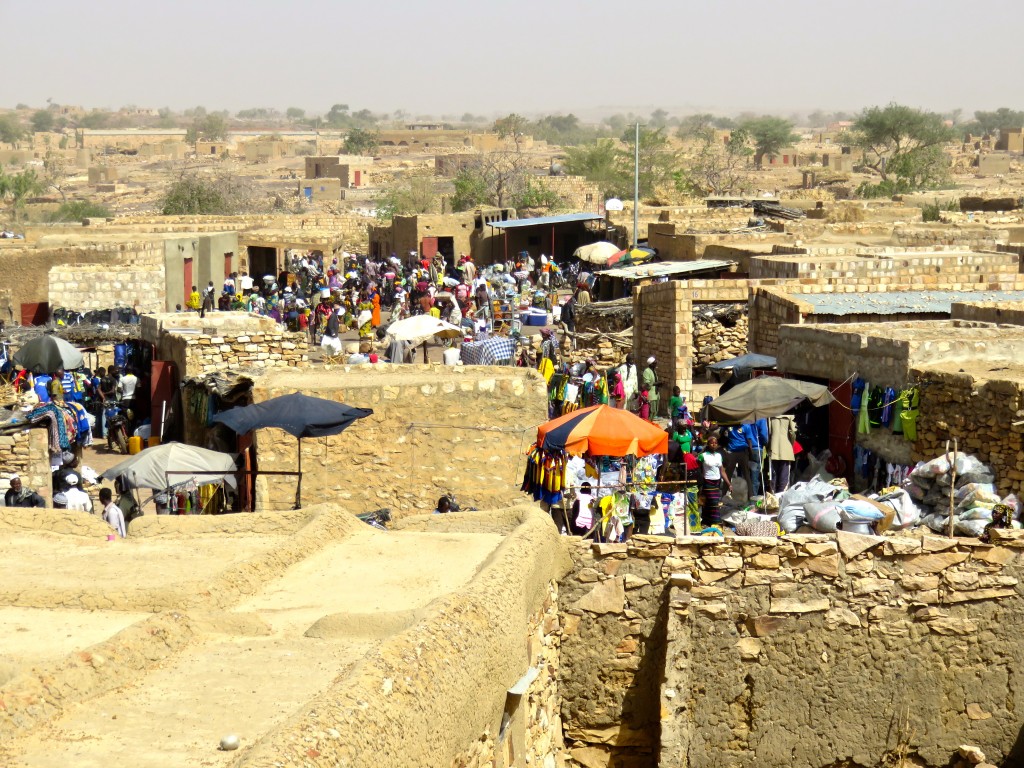
We also checked out the weekly market in Sanga (Jan. 2016).
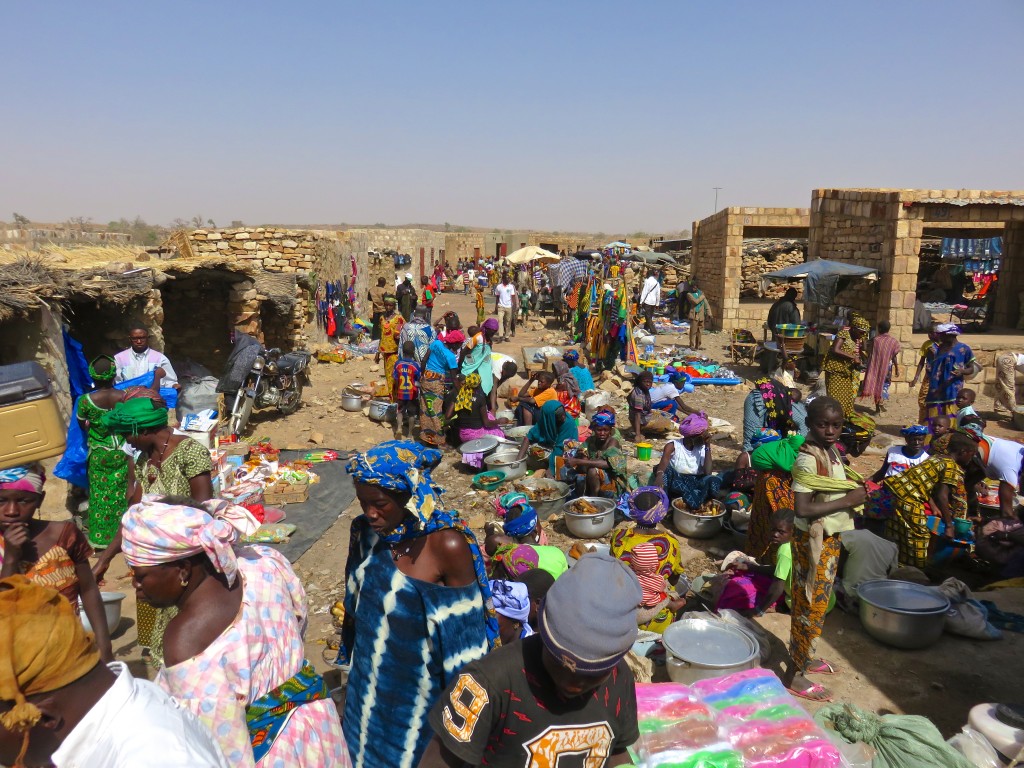
Sanga market (Jan. 2016).
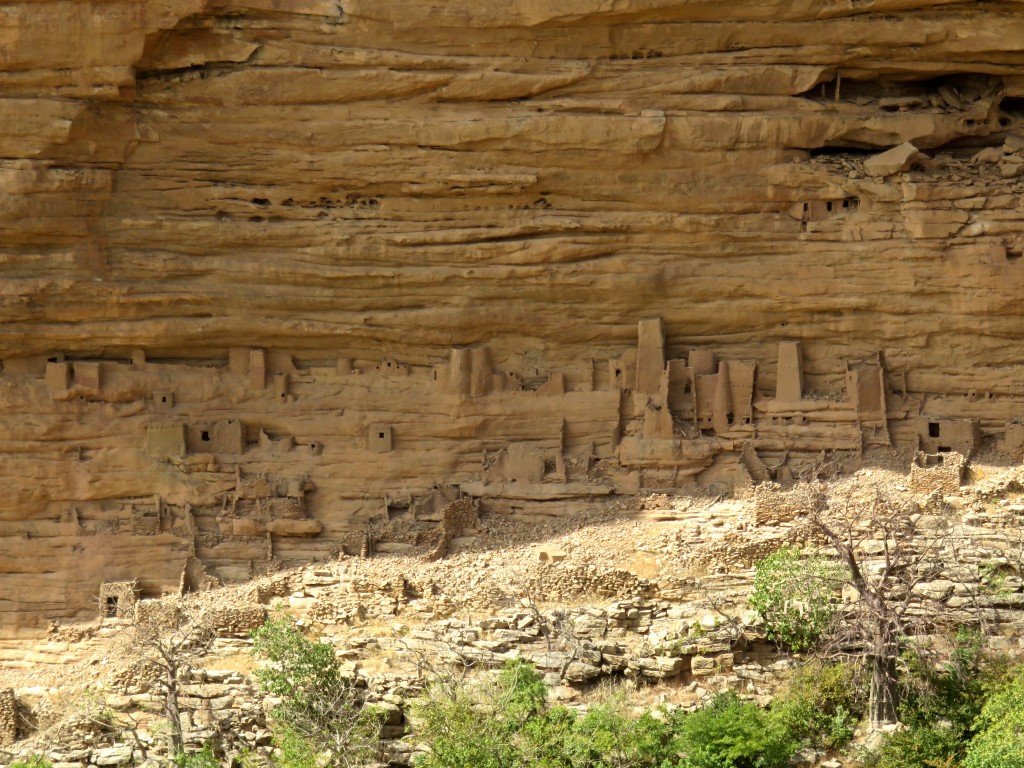
More old escarpment dwellings (Jan. 2016).
Go to Dogon Villages Part 3.
Go back to Mali.